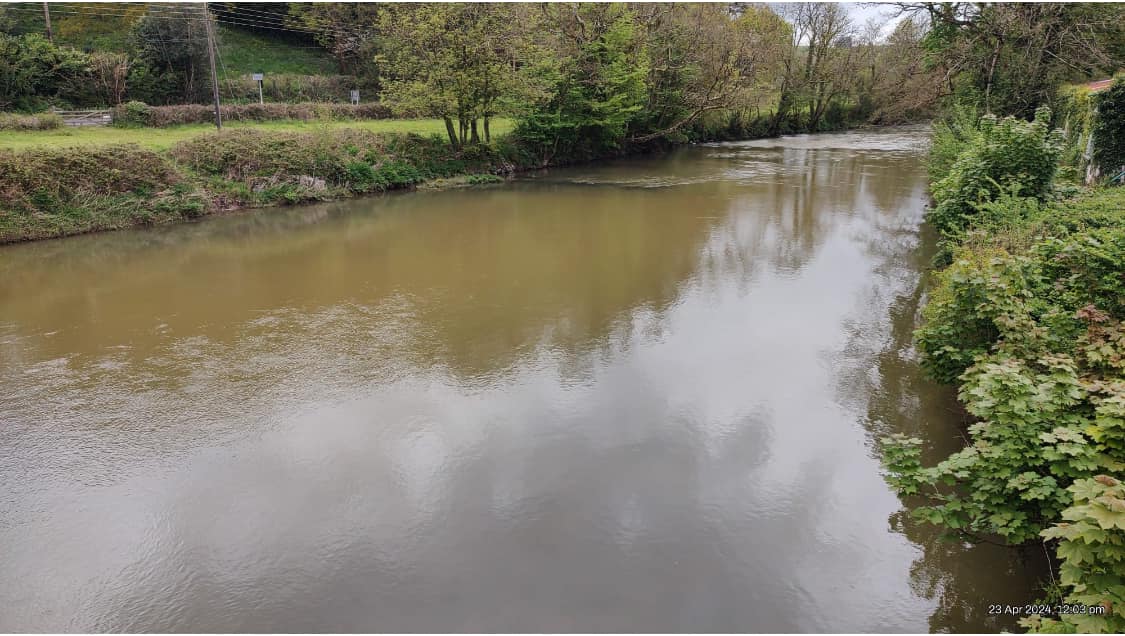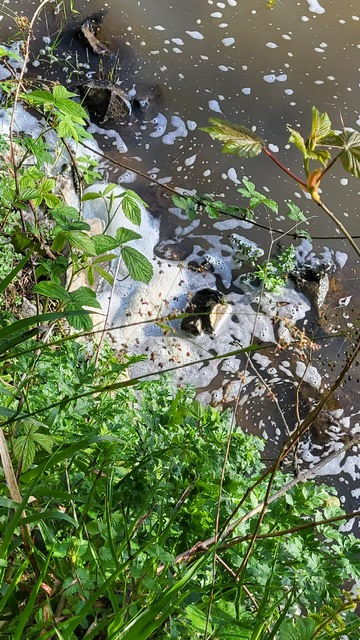The next showing of the Riverwoods Film is at Lynmouth National Park Centre. It will be followed by a presentation by myself that will include a focus upon the River East Lyn and its declining salmon population.
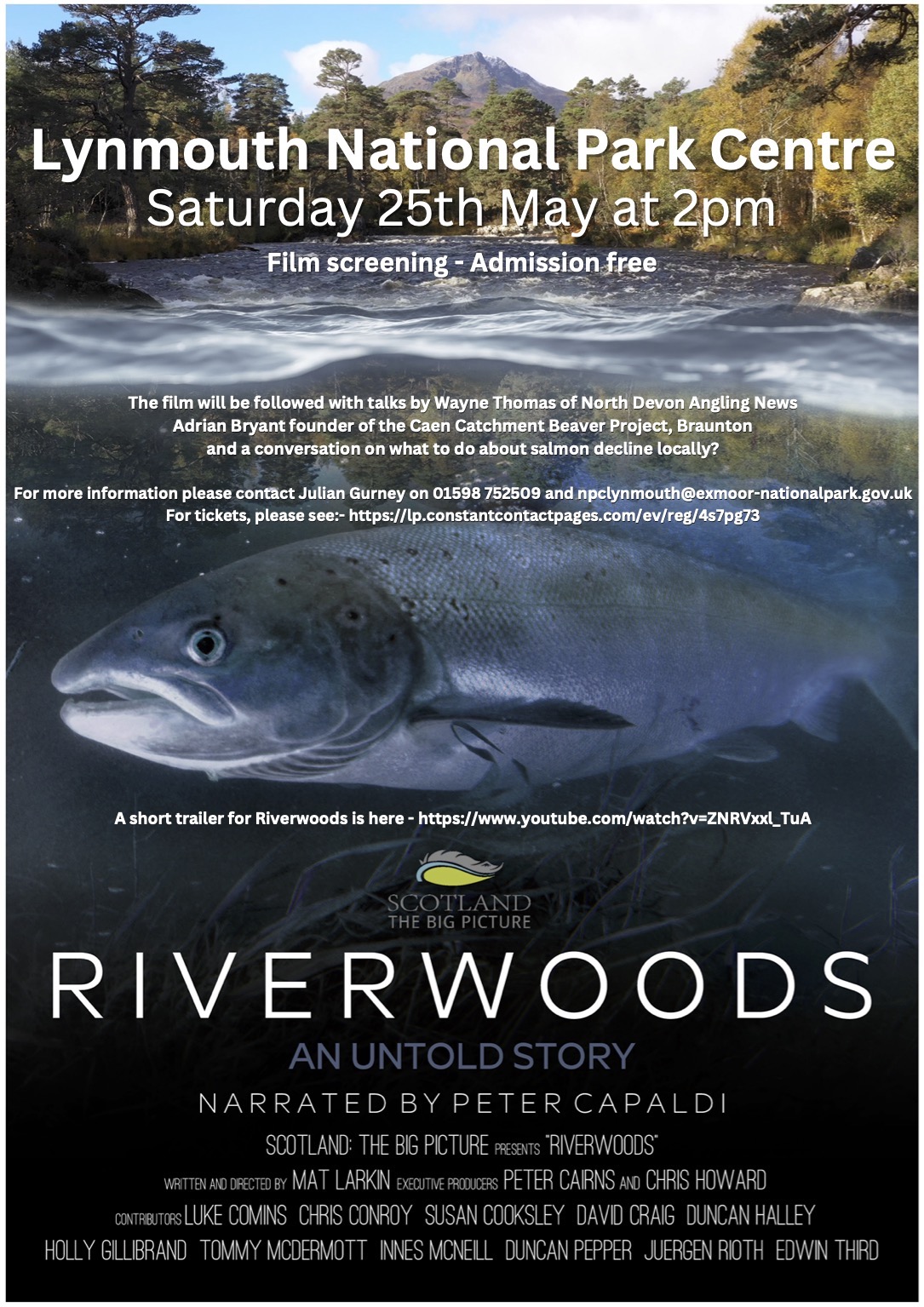

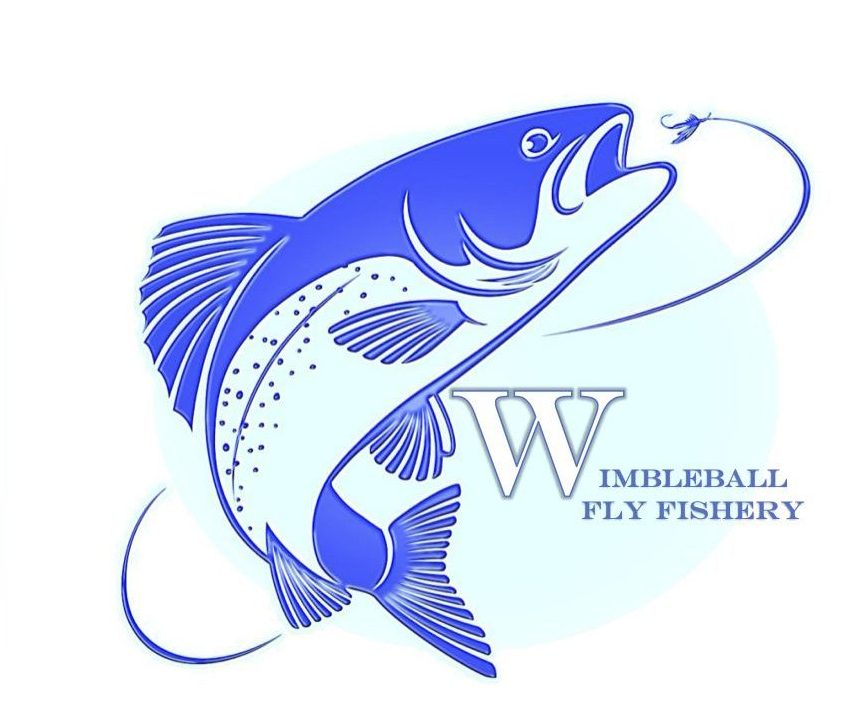
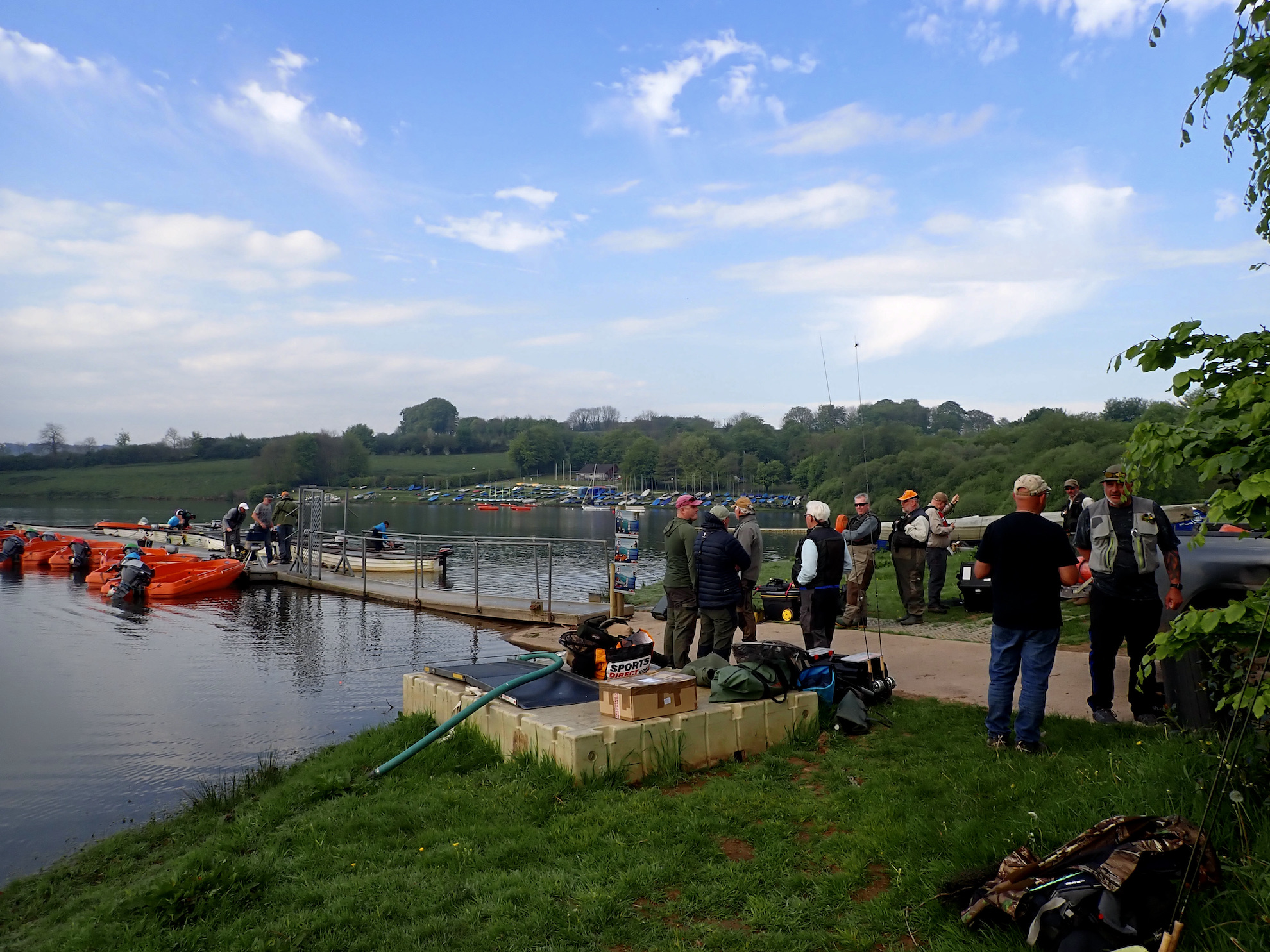
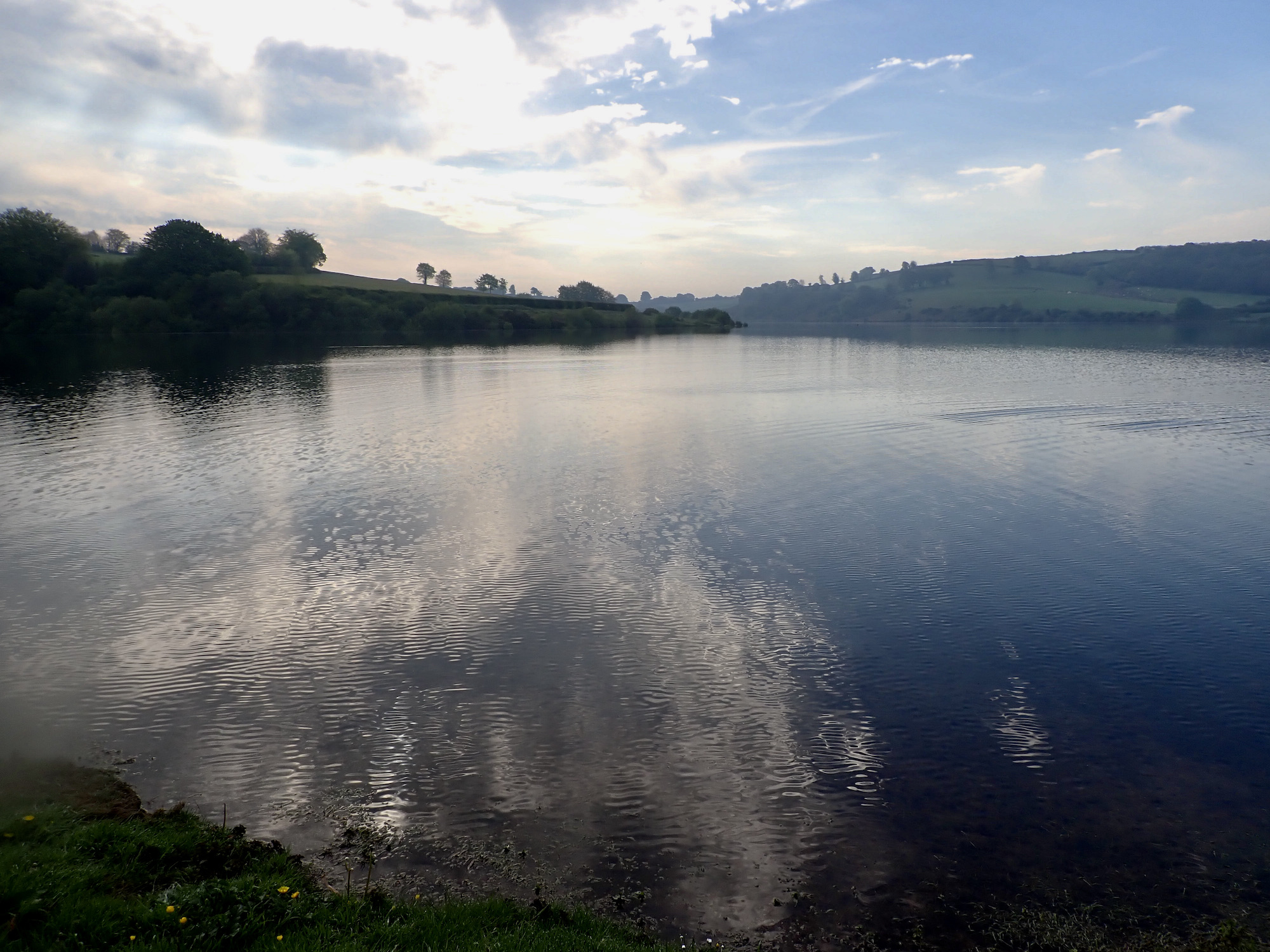
Calm waters greeted Matt Kingdom, myself and other competitors as we assembled for the 2024 Fastmail Pairs Match at Wimbleball Reservoir. A day out on Wimbleball with good friend and experienced Fly angler Matt is always a joy. It’s also a good idea to pair up with an England Team member.
There was a buzz of anticipation in the air as lines were threaded through the rod rings and favoured patterns tied to the tippets. Some had practiced the day before and had an idea of where to head. I was told that there had been a good hatch of bright blobs the previous day and that this could be a wise fly choice!
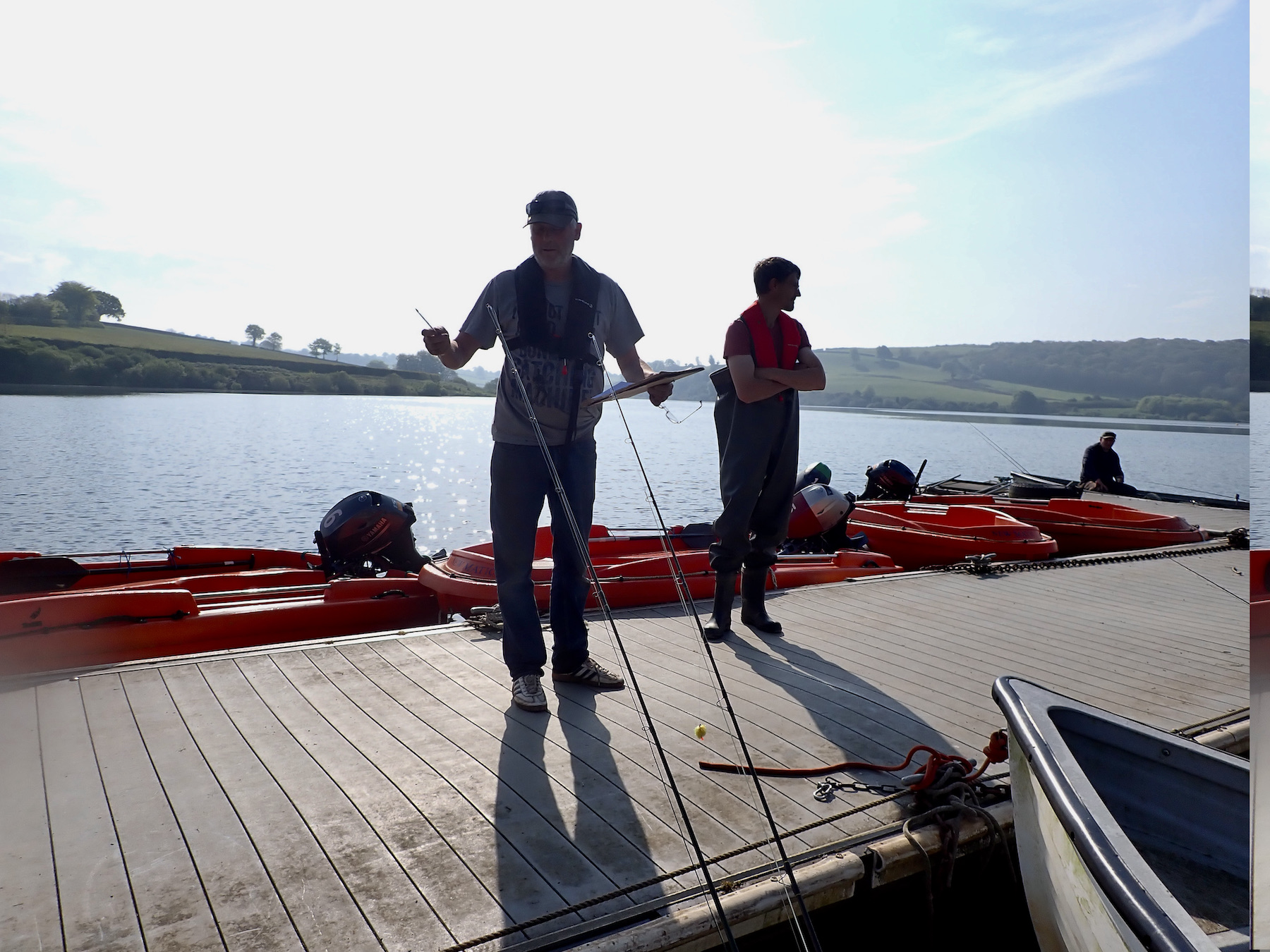
Shortly after 9:00am Mark Underhill gave a briefing to all competitors with rules explained before giving the go ahead to depart and go fishing.
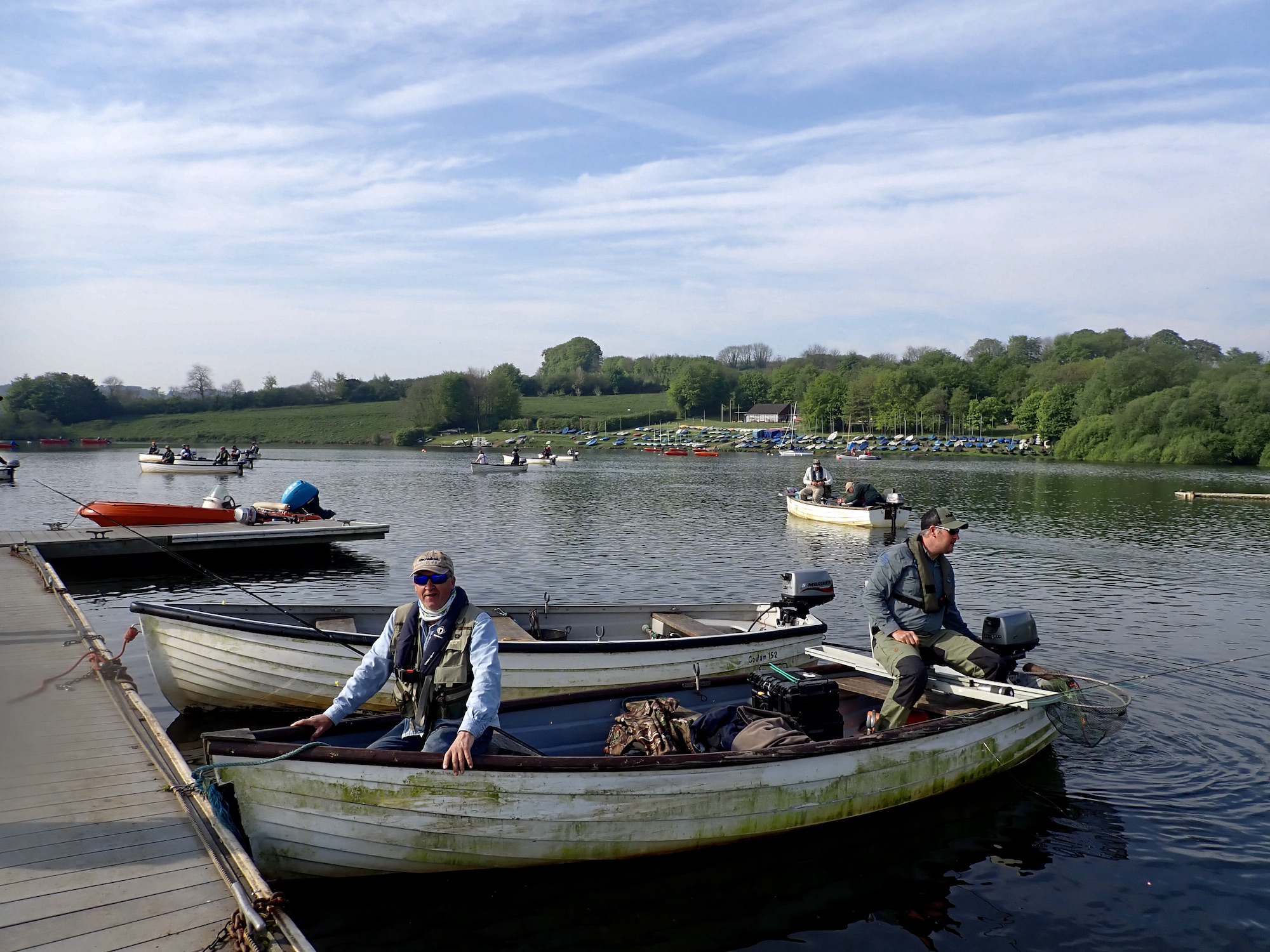
The start off reminded me of a slightly shambolic Grand National Start as competitors boats milled around before the starting signal was given. Competitors set off and Matt and I paused to see where everyone was heading. One thing I quickly learned from Matt is that observation is a key factor in competitive angling.
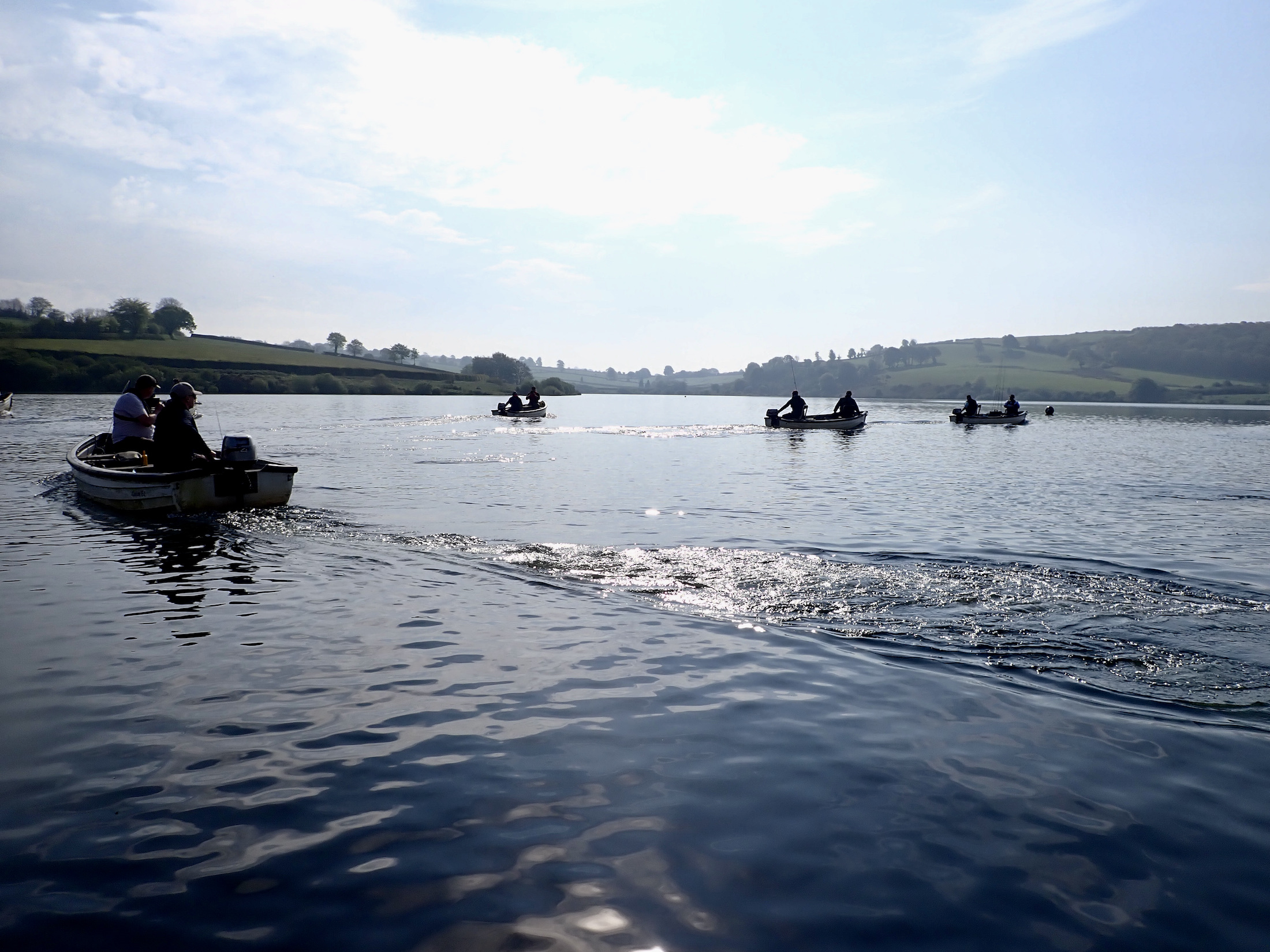
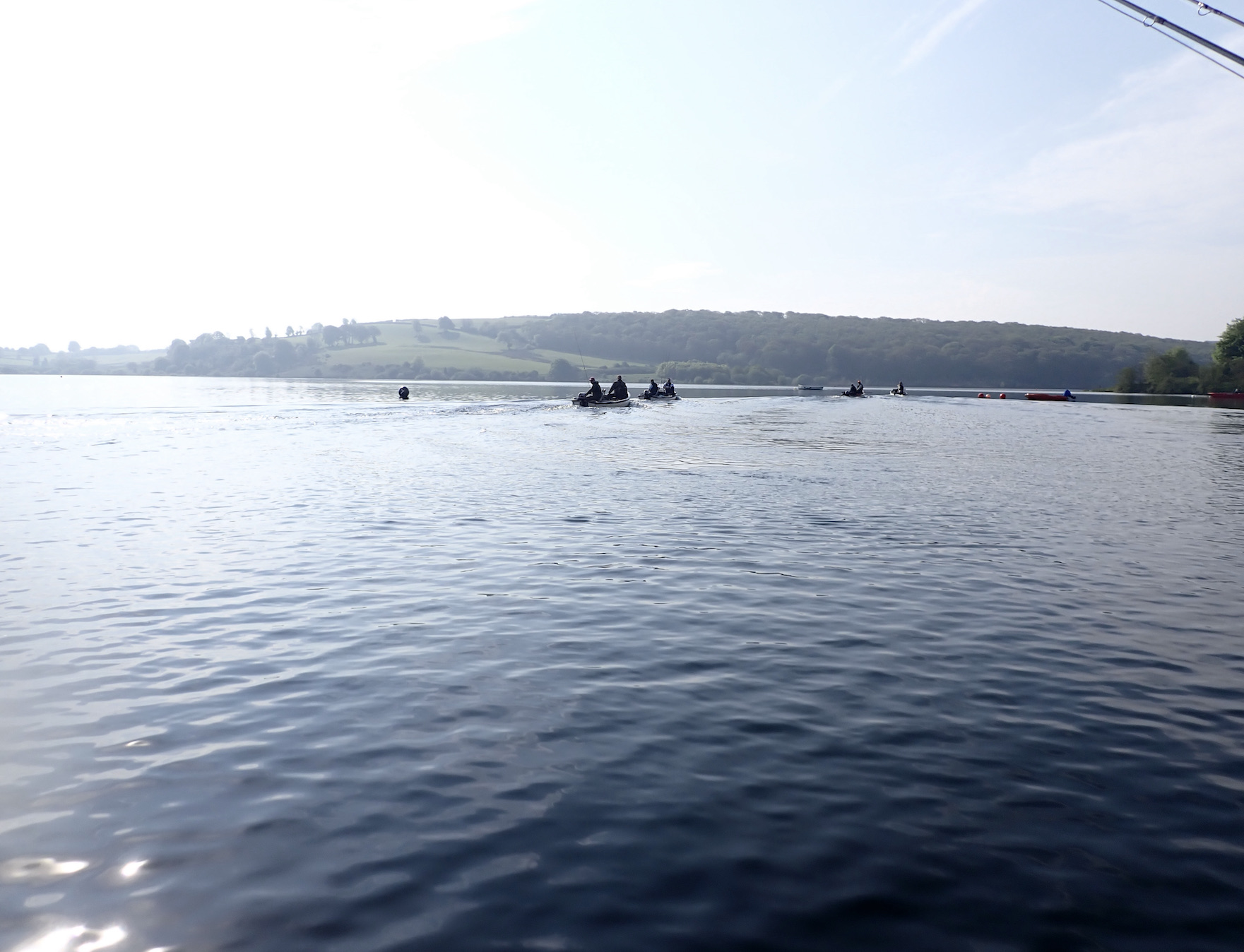
We headed straight for Cowmoor Bay an area that had been producing a few fish and an area that we had both done well in during previous visits.
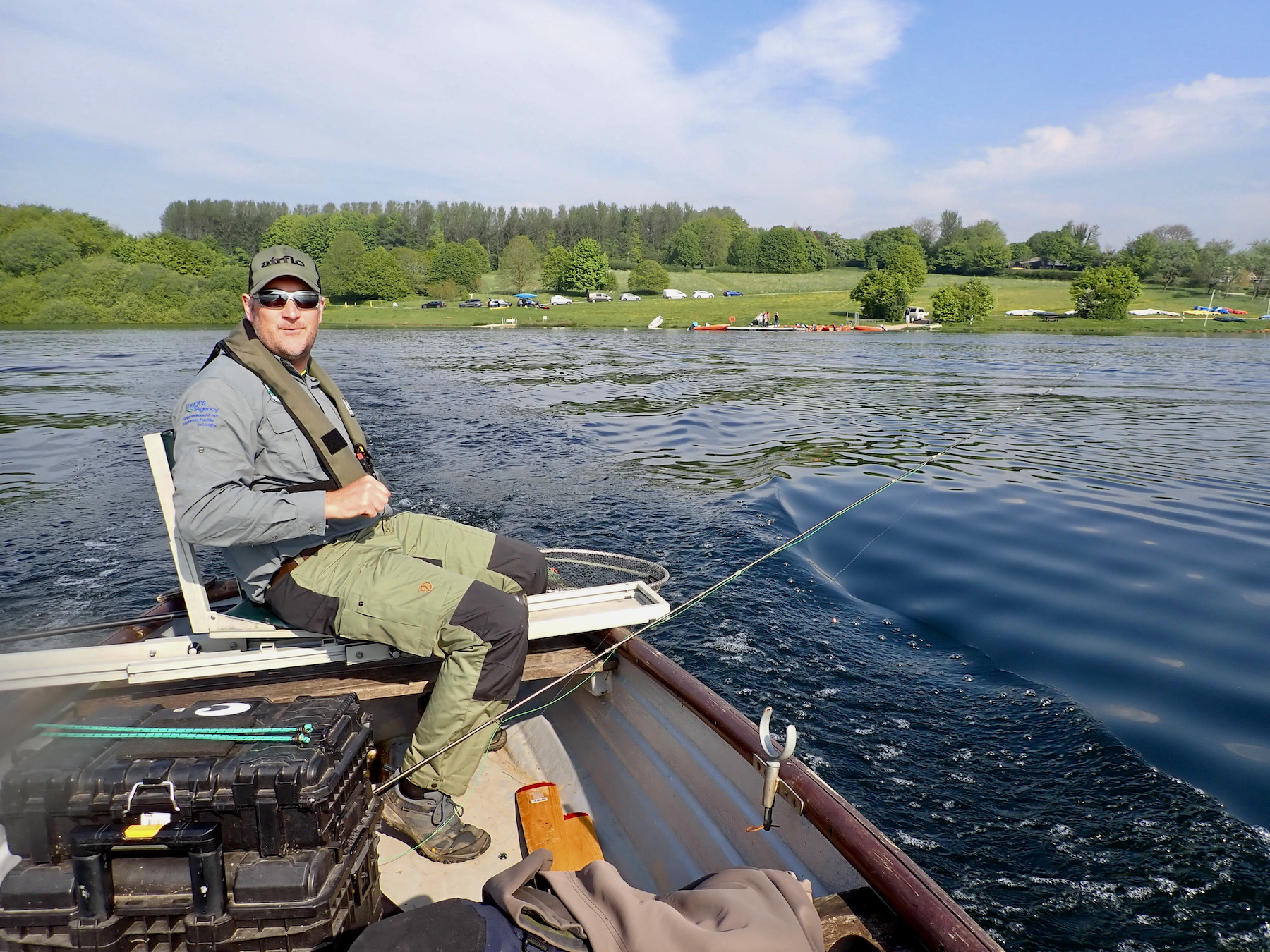
It was a beautiful morning to be on the water with warm sunshine and a very light cyclonic breeze. The wooded banks and gently rolling arable land a delightful backdrop on this May morning. A time of year when the English countryside is at its most beguiling.
The occasional fish was rising but we soon realised that we had made a wrong choice when we saw a boat heading back to the pontoons at 10:30am, presumably with their ten fish bag complete.
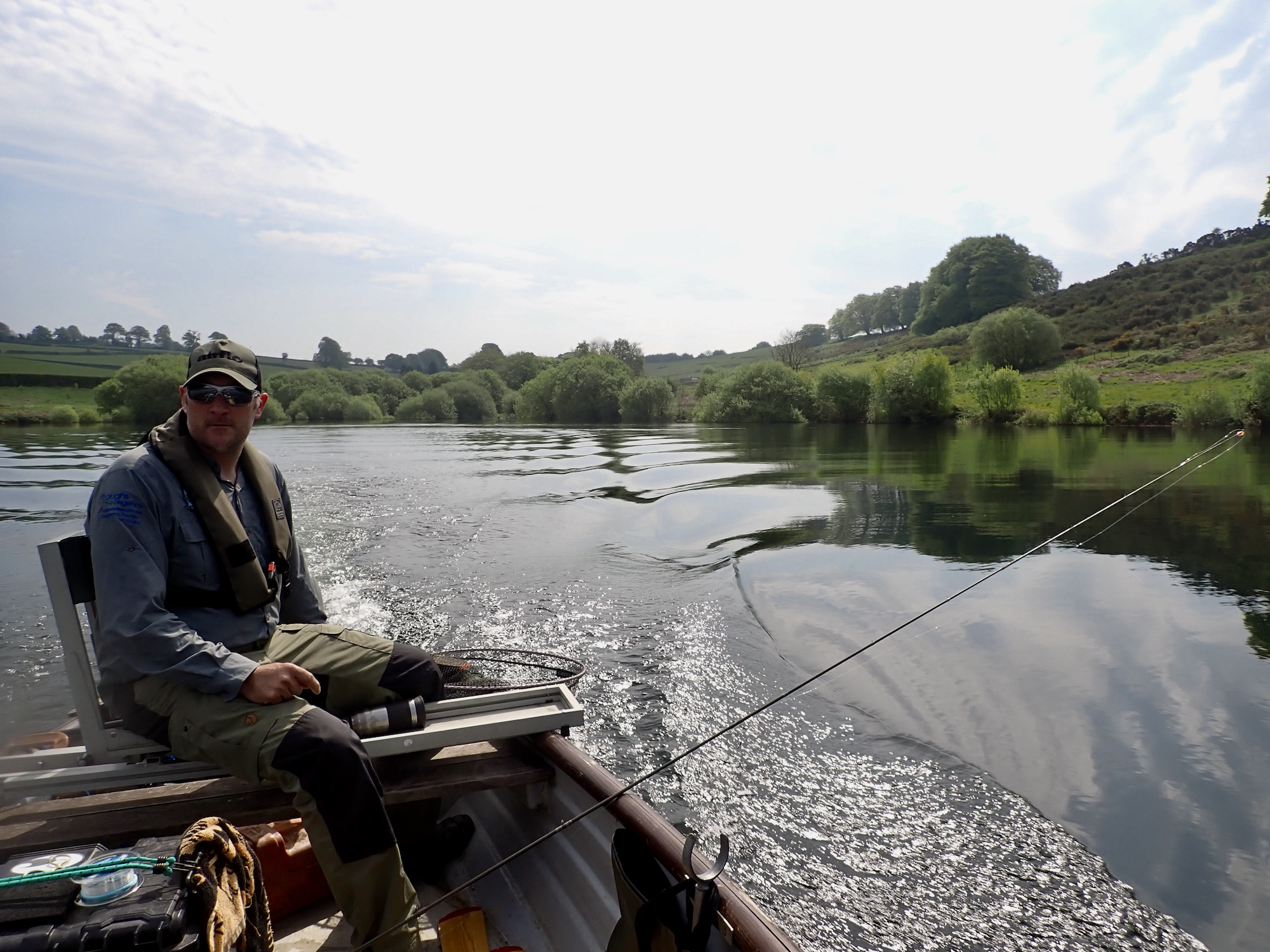
A change of area was required as by this time Matt had caught one nice rainbow and I had had one follow.
We moved to the Dam end of the lake where most competitors seemed to be concentrating their efforts. We drifted the deep water in the gentle breeze. My line zipped tight and I was into a hard fighting full tailed rainbow a moment that was given added value when that evocative sound of the cuckoo drifted across the lake.
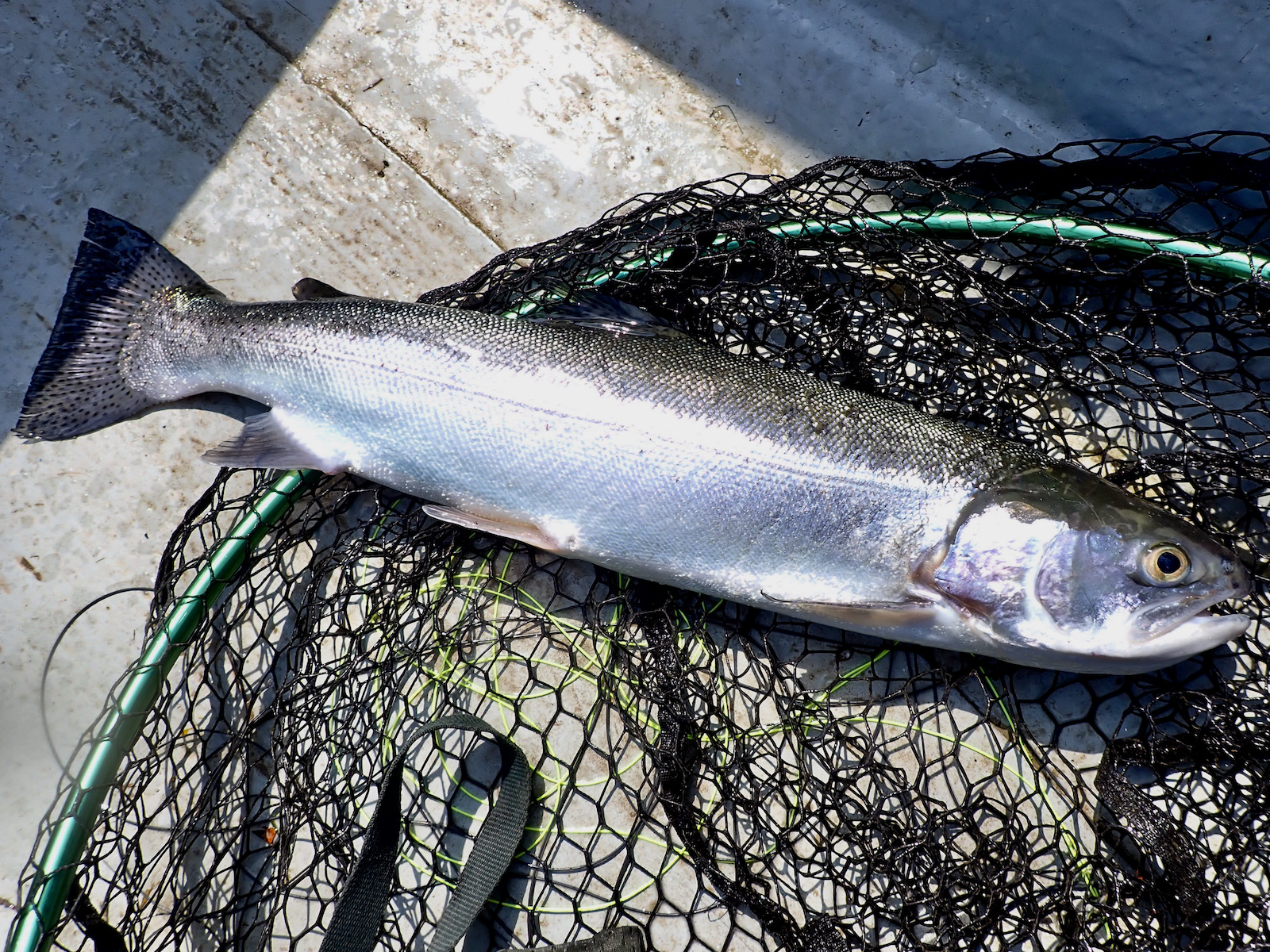
Over the following two and a half hours we picked up fish on most drifts with Matt’ s competitive experience undoubtedly scoring for us as we fished hard Matt ending with seven rainbows to my three.
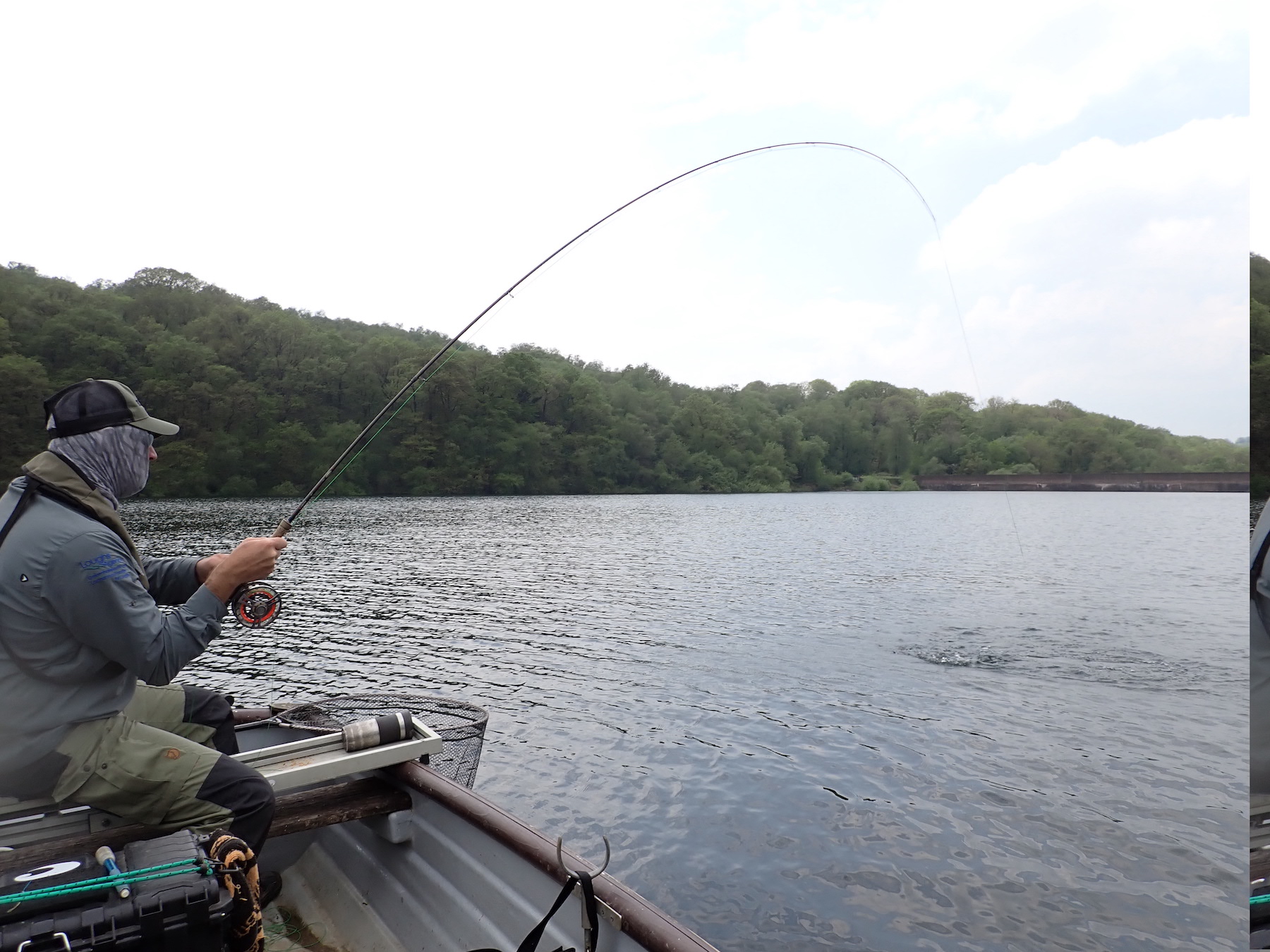
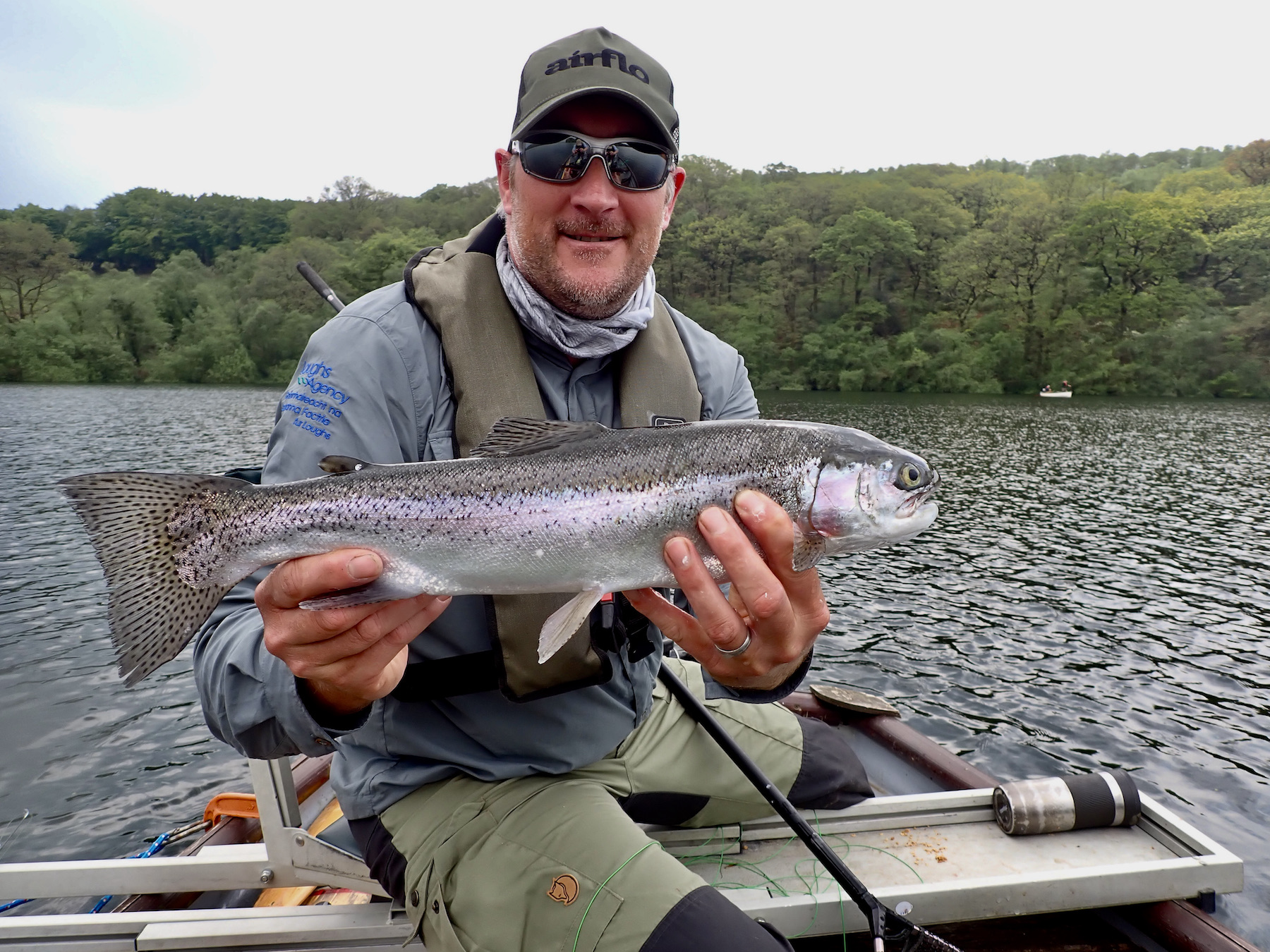
We headed back to the pontoon with our trout and weighed in to record 32lb 8oz inclusive of our time bonus.
Despite being close to four hours later than the winning pair at completing our bag it was pleasing to end up in third place.
It had been a very enjoyable day. Many thanks to fishery manager Mark Underhill and Jeff Pearce from Snowbee who worked very hard on the day ensuring that all went to plan. Thank you to Phil Dixon for organising the day and providing prizes and goodie bags.
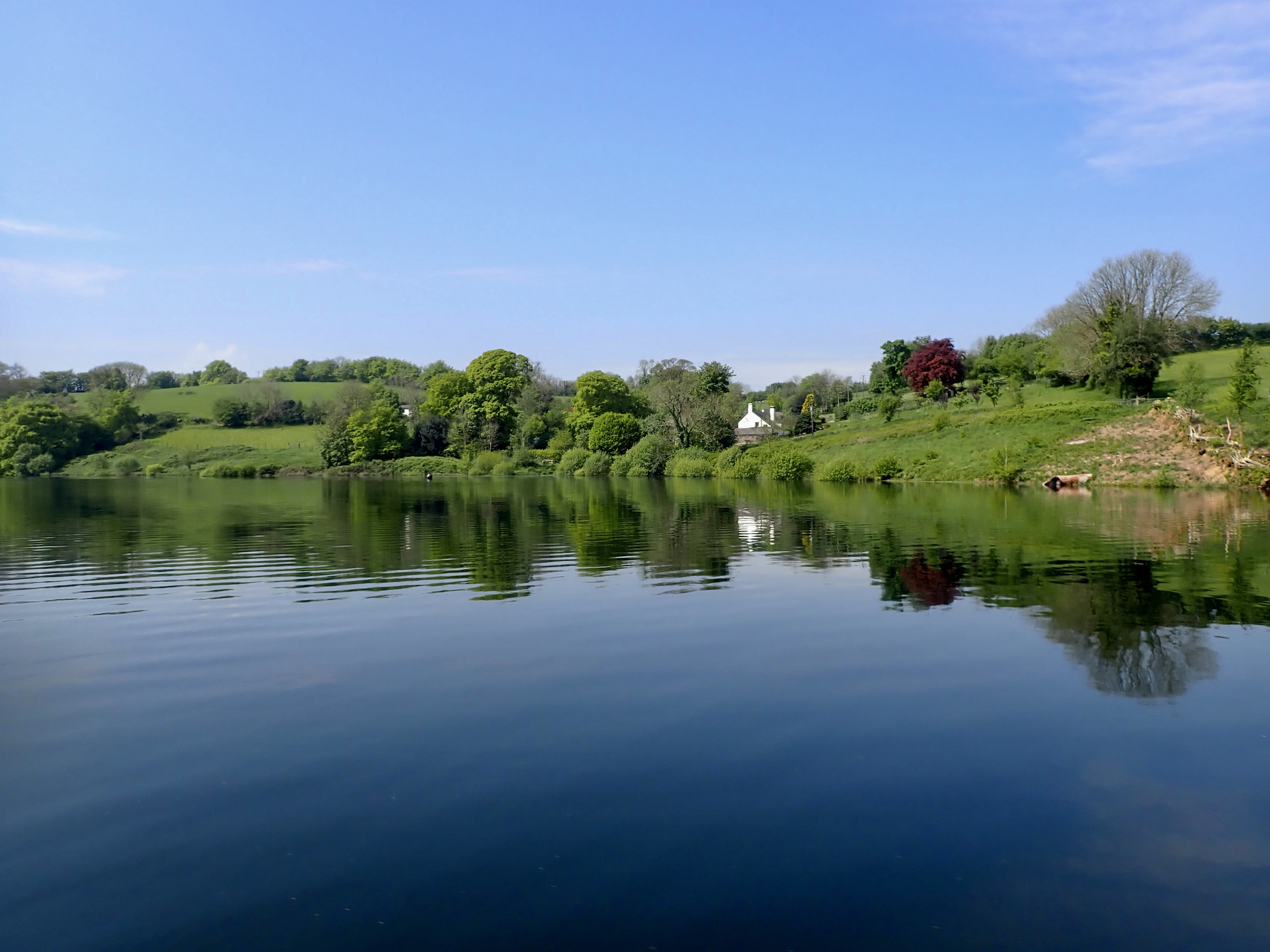
Tghe UK River Summit is to be held beside the River Wandle in London on May 21st. It looks like it will be very intersting event for those who are passionate about rivers across the UK and beyond. Please see information below: –

https://www.theriversummit.com/the-uk-river-summit-2024-panel-discussions
https://www.theriversummit.com/the-uk-river-summit-2024-culture-celebration
https://www.theriversummit.com/our-partners
This unaffiliated event, curated by an independent team comprising of Claire Zambuni, Emma Sandham and Iona Mackay, aims to facilitate a forum for interesting parties and stakeholders involved with the range of issues affecting UK rivers. Set at Morden Hall on the River Wandle in London on the 21st May 2024, The UK River Summit & Festival provides a platform for collaboration and communication on the current issues and solutions required to improve the health of our rivers.
Bringing together environmentalists, policy makers, regulators, campaigners, anglers, media, businesses, politicians and members of the public who all share a desire to work towards a more positive future for our rivers, this event offers interested parties the opportunity to build relationships and network while also finding time to celebrate our rivers, engage in community-led initiatives, and experiences based on the river Wandle.
Following the success of the inaugural UK River Summit on the River Test in Hampshire last year, this event moves to the River Wandle, a unique chalk stream flowing through an heavily urbanised area intertwining a rich historical past with a current ecological importance.
Claire Zambuni, Founder of The River Summits & Festivals said “The UK River Summit offers the opportunity to discover some of the valuable work going on and the knowledge to affect change, as well as celebrate our rivers based on an extraordinary chalk stream, the River Wandle. We are hugely grateful for our partners’ support on this unique event. We hope the Summit helps present a collaborative voice in demanding positive action for our rivers and waterways. In this general election year, the need for action and to engage politicians to work across parties to resolve this crisis, has never been greater.”
Penny Gane, Head of Practice at Fish Legal said, “With the state of our rivers and lakes rarely out of the headlines, this event is an opportunity for local people to find out what is being done to turn things around.”
As we navigate the challenges of a rapidly changing planet, the key to environmental progress lies in facilitating continuous dialogue between various players – from government officials and NGOs to businesses and the public. This event aims to bridge these gaps. Attendees will gain informed knowledge from key environmental stakeholders, be able to ask direct questions, work collaboratively to find solutions, and celebrate our rivers.
Date, Location, and Schedule:
Tuesday 21st May 2024 at Morden Hall, South-West London
“It’s not all about sewage” summit panel speakers include:
Afternoon panel discussions include:
Film Screenings include:
Afternoon activities include:
Tickets:
Tickets are now on sale here: UK River Summit – Orvis UK
Tickets include refreshments and lunch, and all activities on offer during the day.
All tickets must be bought in advance before 17th May
Event partners include The National Trust, Proteus Instruments, South East Rivers Trust, Fish Legal, Orvis UK, River Action UK, The Rivers Trust, Surfers Against Sewage, Filson, The Wandle Piscators, The Wandle Industrial Museum, Delivita, Lakedown Brewing Co., and Abel & Cole.
For more information please contact Zambuni Communications on the details below.
PR Contacts
Claire Zambuni | [email protected]
Emma Sandham | [email protected]
Iona Mackay | [email protected]
|
||
|
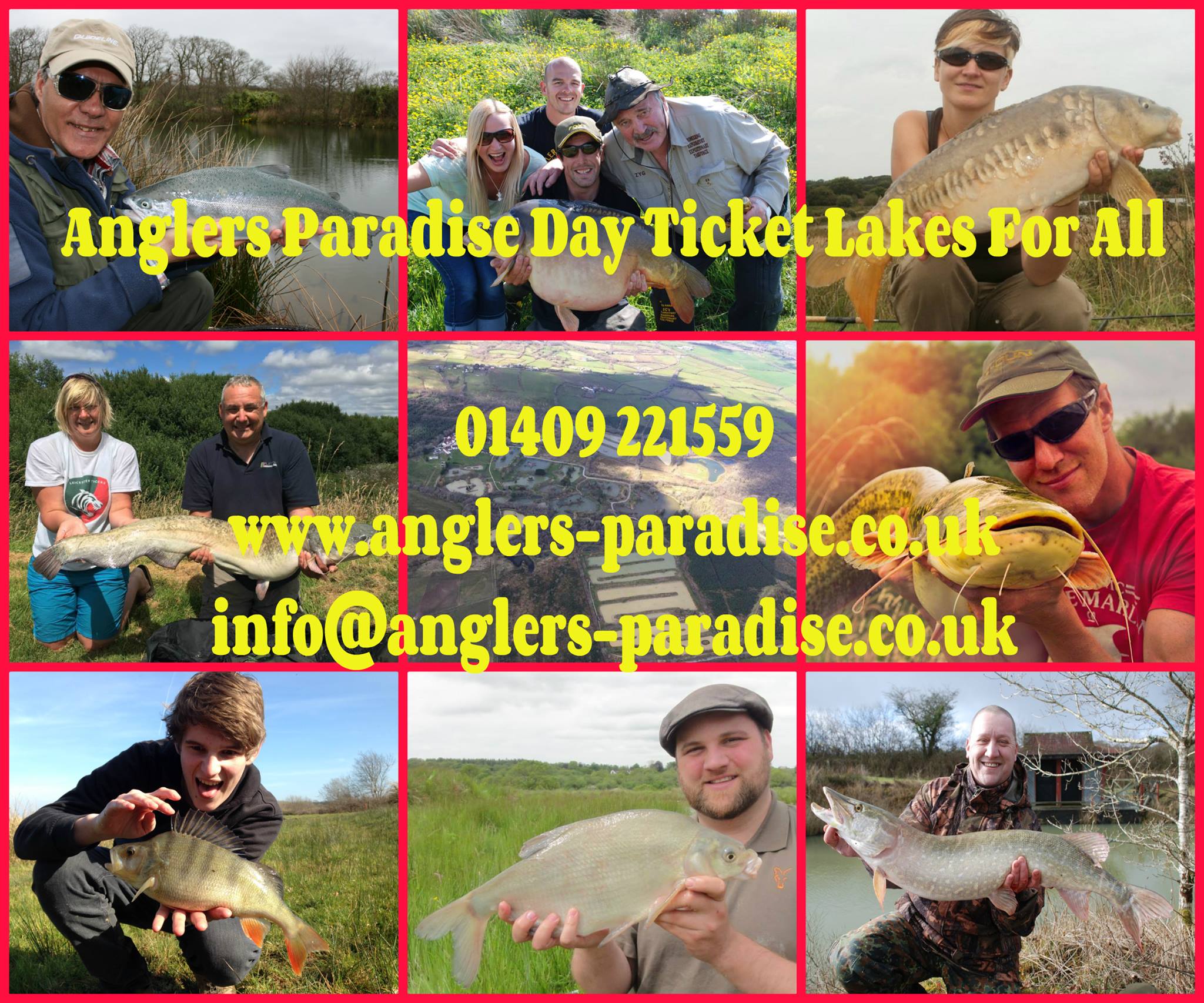
Snowbee Ambassador Jeff Pearce and I visited Anglers Paradises Day Ticket Trout Lake during May last year and enjoyed a rewarding days fishing catching rainbow trout to over five pound and tiger trout estimated at 8lb.
We were both keen to return and arranged a visit with Go-Catch representative Peter Skrivanos.
After hearing reports of some stunning fish in recent weeks we were full of optimism as we headed across the meadow to the water.
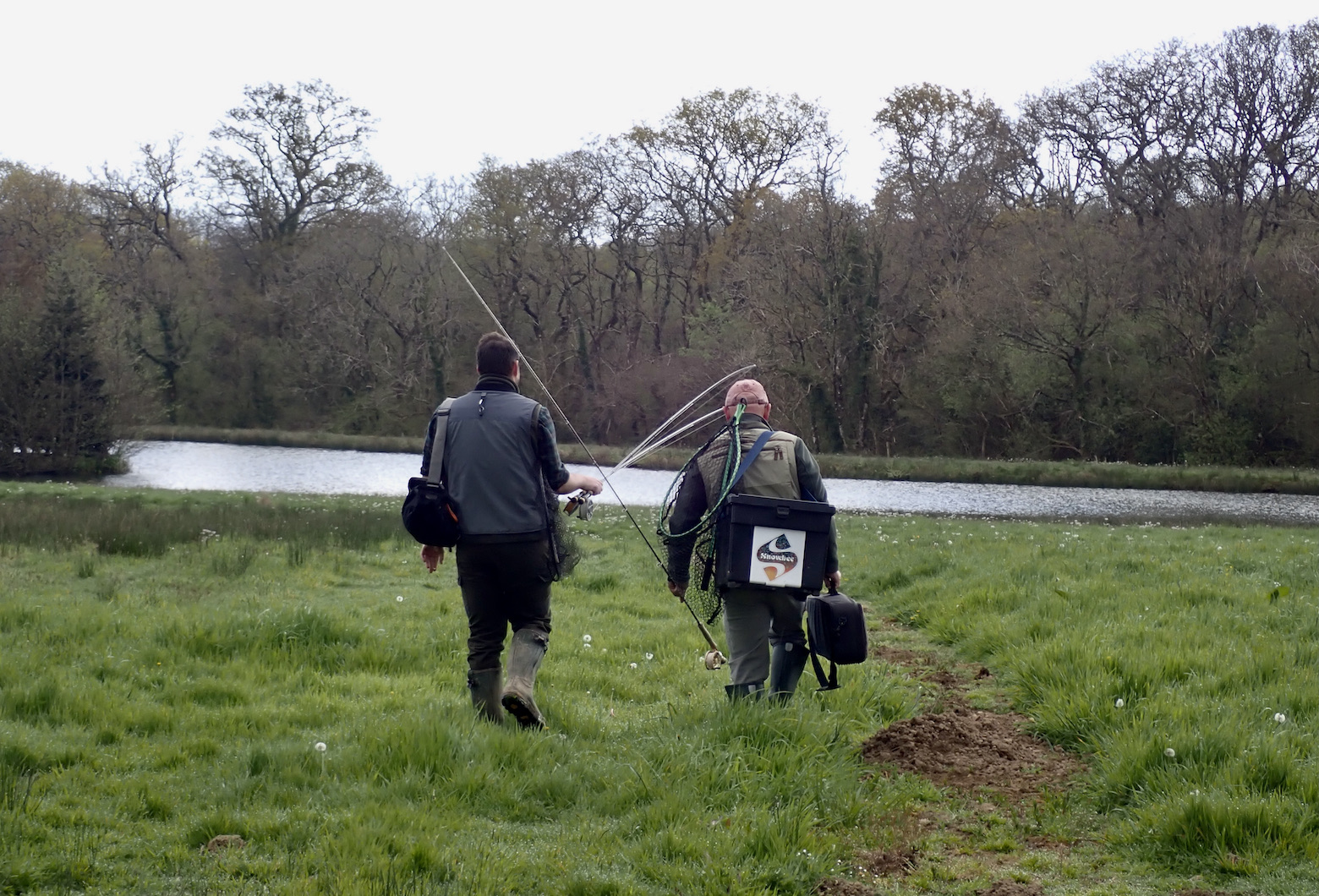
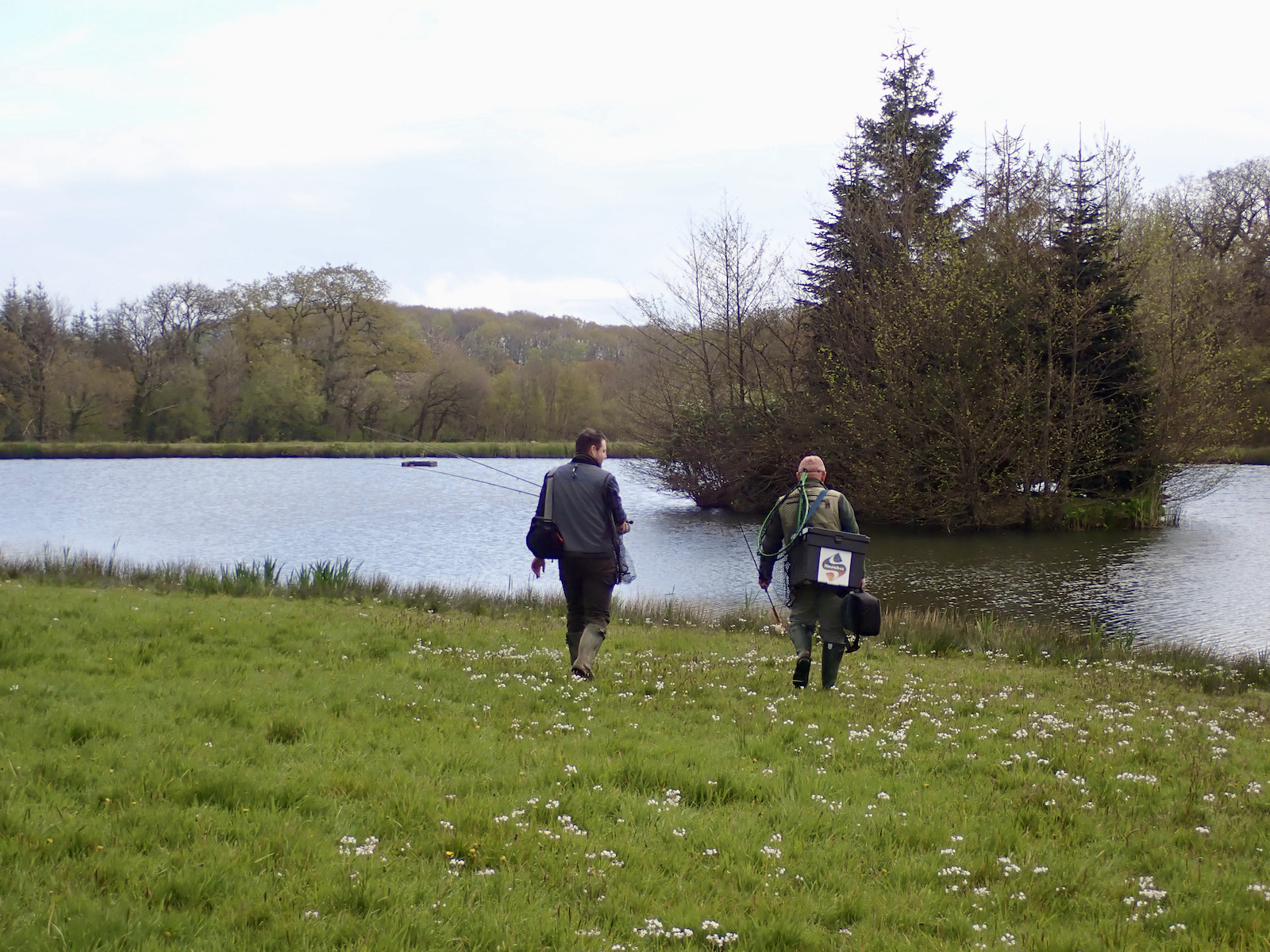
Verdant green was appearing on the trees and cuckoo flowers decorated the lakeside grassland. Despite obvious signs of spring a cold North East breeze made it feel more like winter. There was at least a touch of blue between the clouds lifting the spirits as we made our first casts.
Peter was starting with a bold approach tying on a rather gaudy lure that he assured us would appeal to the aggressive tiger trout that reside within the lake.
I tied a tried and trusted gold head damsel nymph to my 10.5lb b.s XS plus Gold leader and proceeded to search the water with an Intermediate Snowbee XS Fly Line. I was well aware that the lake holds big hard fighting trout and wanted to get the fish to the net as quickly as possible to ensure they could be returned safely to the water after a minimal battle.
After just a few minutes Peter hooked into a hard fighting tiger trout that gave a fight out of proportion to its moderate size of perhaps 1lb 12oz. Peter kept the fish in the net and slipped out the barbless hook allowing me to get a quick picture before the fish swam briskly back into the lake.
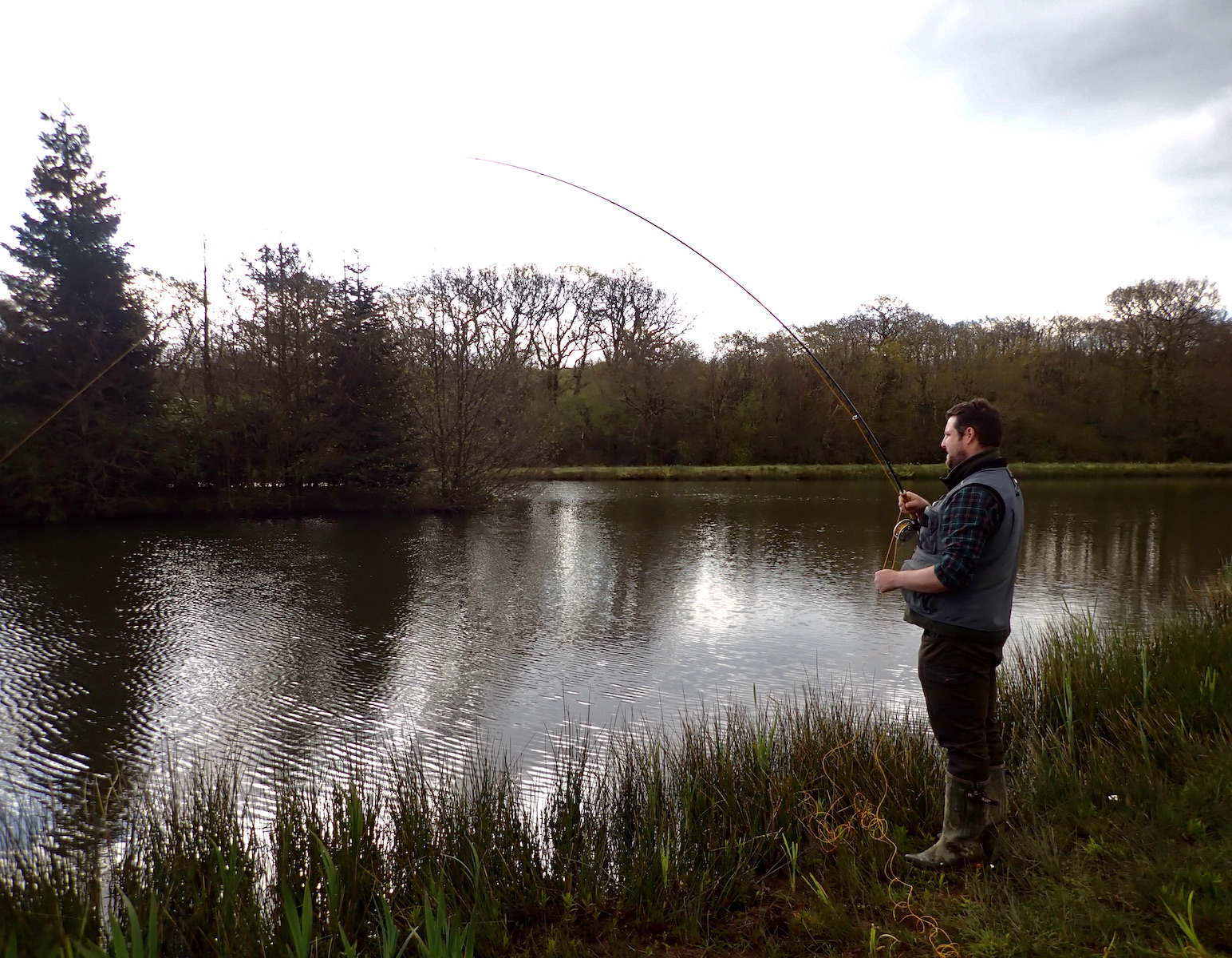
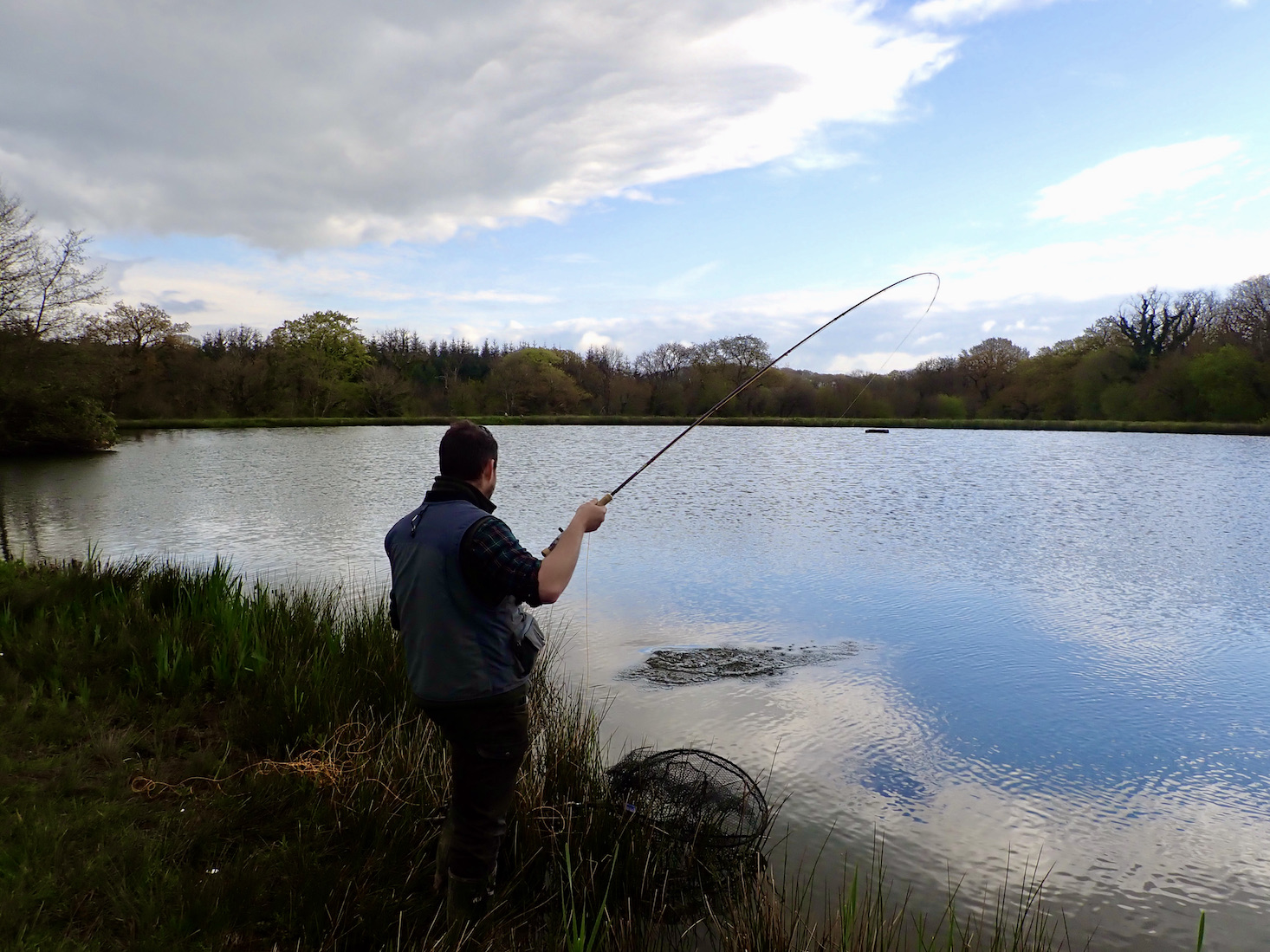
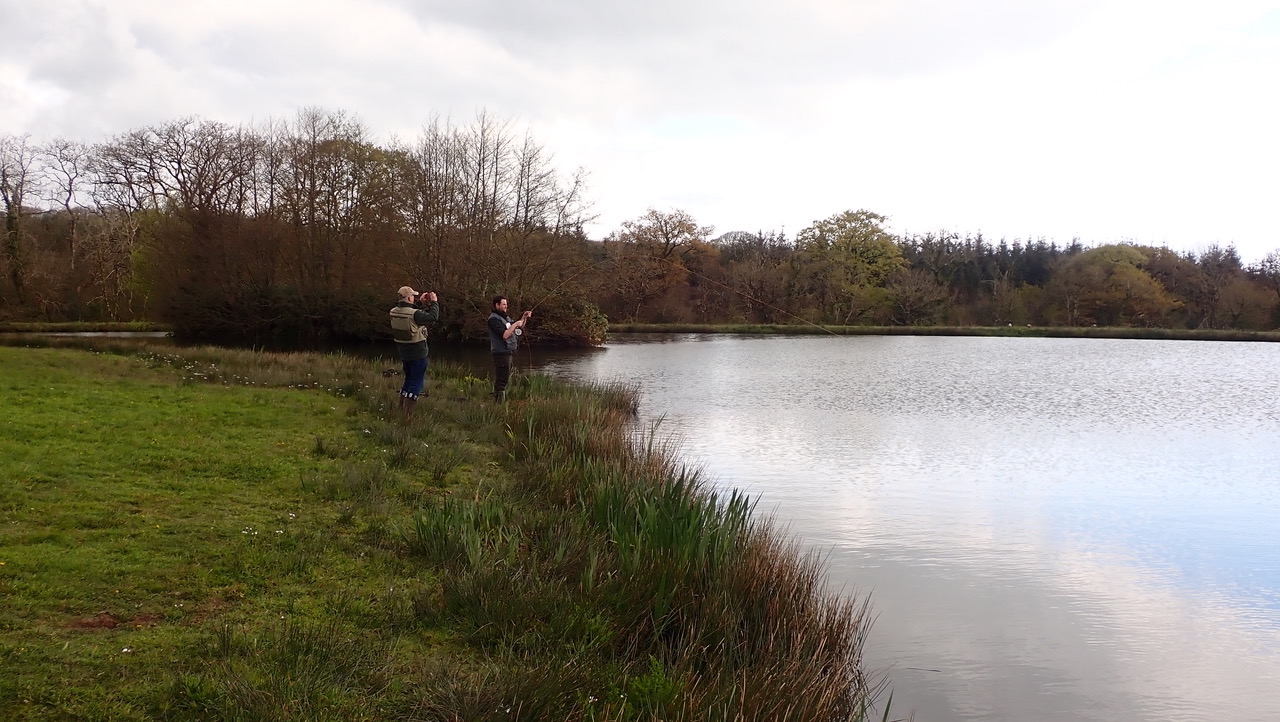
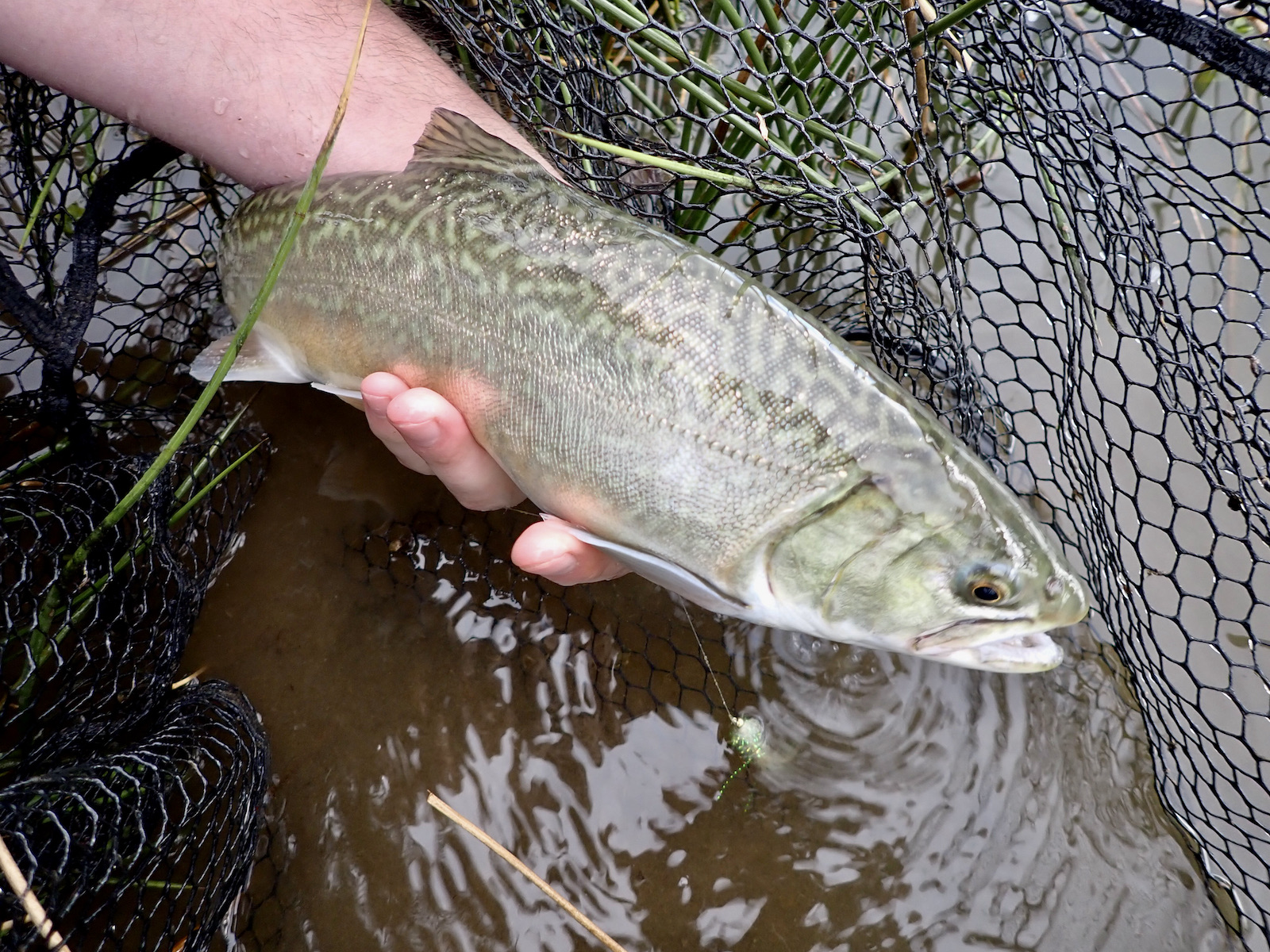
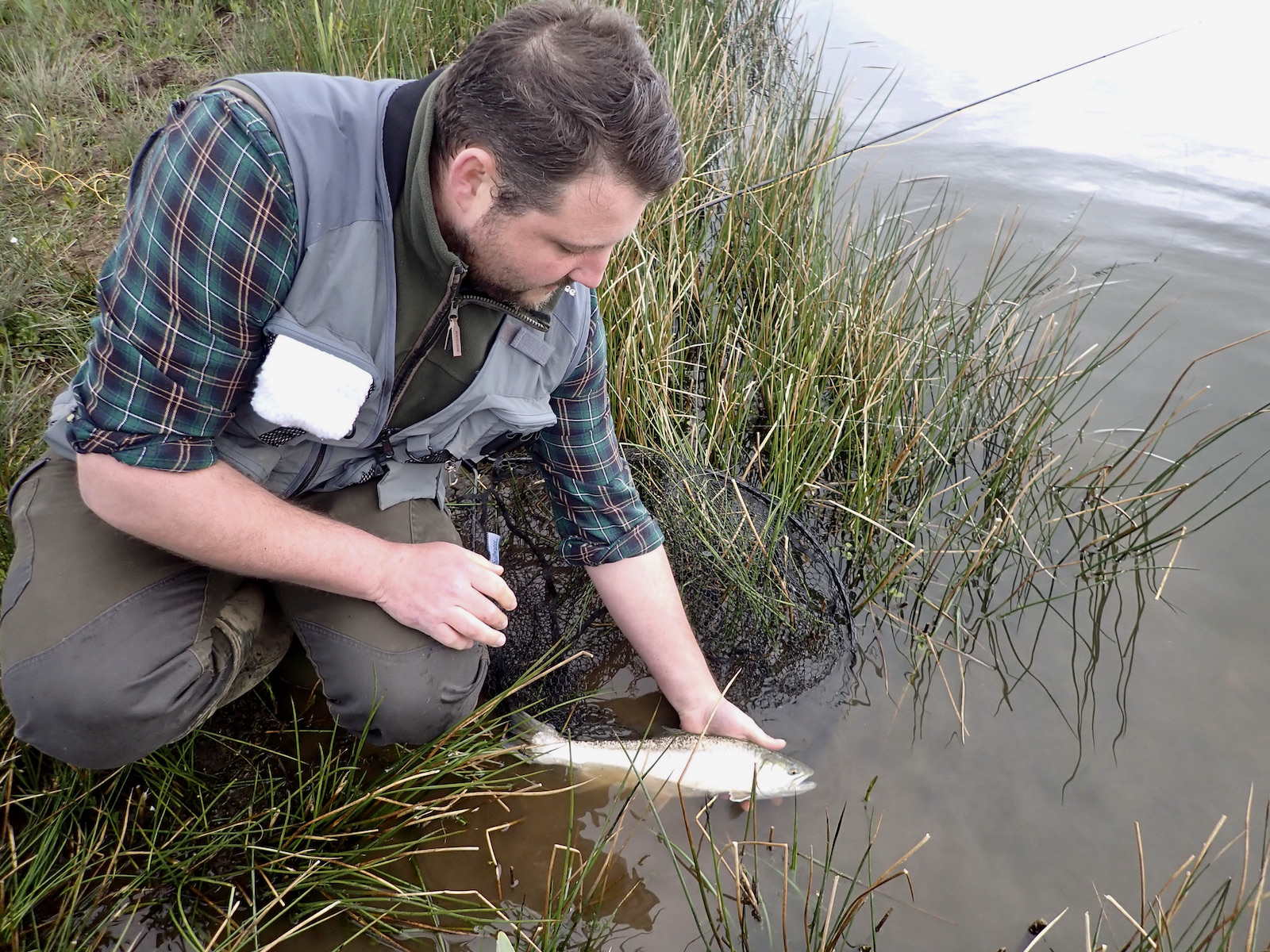
After twenty minutes or so without any action I moved to the lakes corner and hooked a handsomely marked brown trout that slipped the hook before visiting the net.
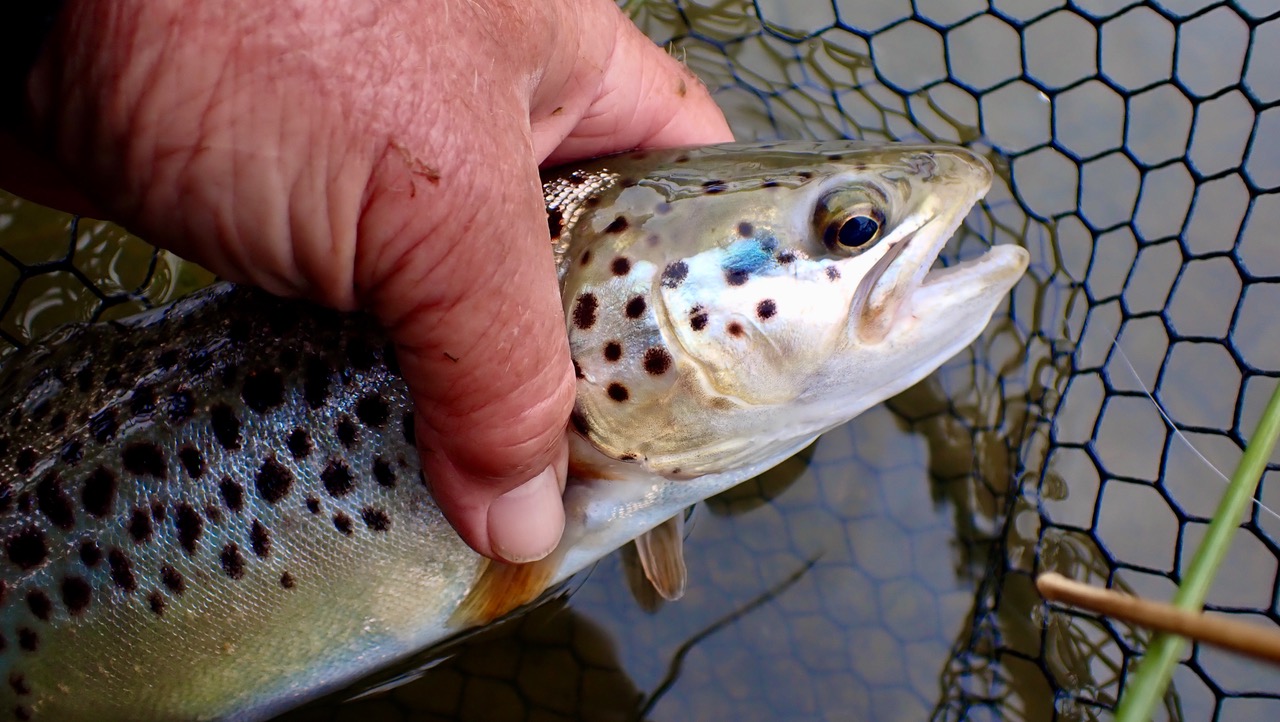
As the morning ebbed slowly away it became clear that the residents were playing hard to tempt. Jeff caught a tiger of 1lb 8oz and and a small handsome brown trout we all caught numerous small perch, stripy sergeants that evoke memories of childhood days beside still-waters.
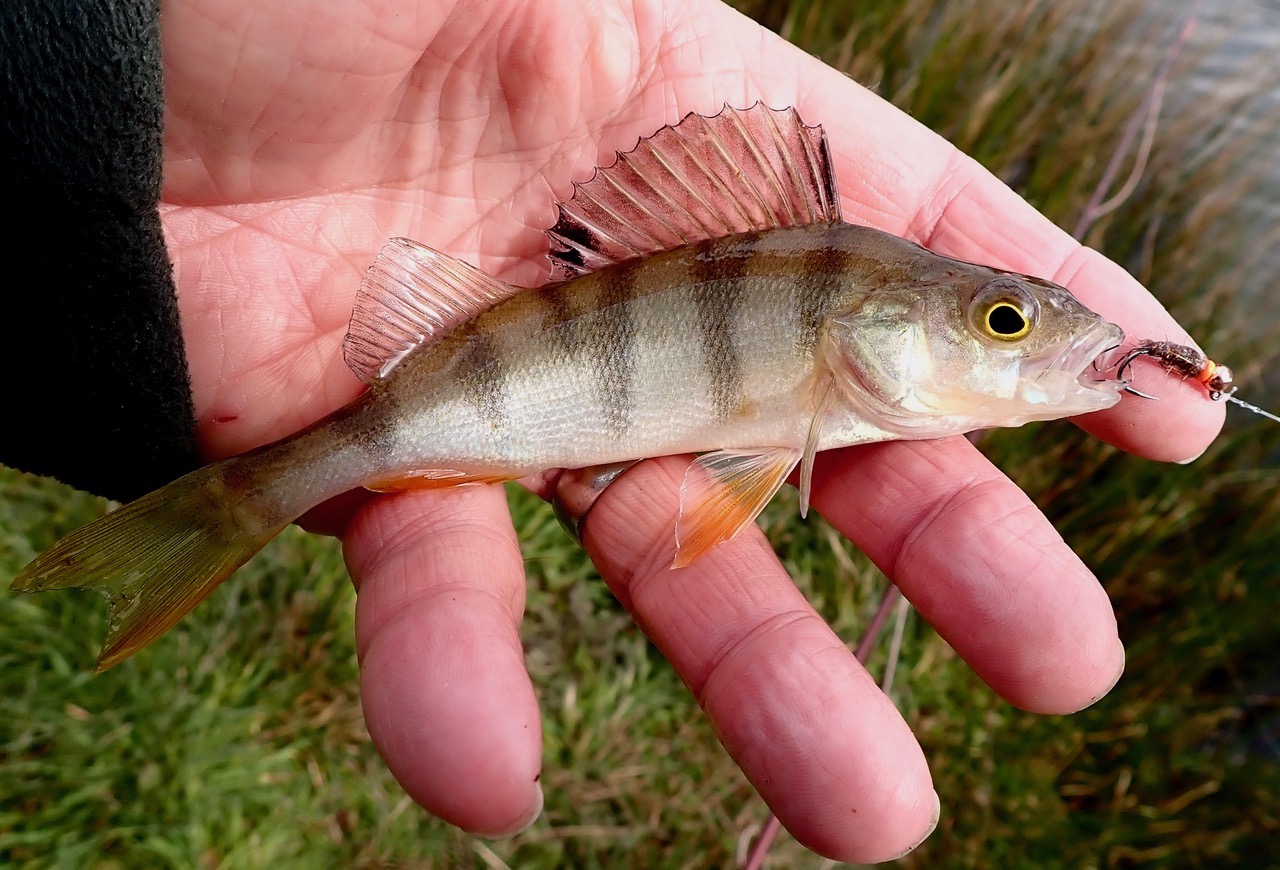
The vibrant sounds of woodpeckers drilling in the woods drifted across the valley. The evocative call of a cuckoo lifted the spirits a sure sign that summer is on its way after what seems a long wet winter and Spring.
I noticed several fish rising close to lakes overflow tower and changed to a floating line, suspending a black buzzer beneath a sight indicator.
Casting this out I commenced an ultra-slow retrieve just keeping the line tight in the gentle breeze. I watched the indicator intently and lifted the rod sharply when I noticed it plunge beneath the surface. The rod a Snowbee Diamond 7wt took on an impressive curve and line was ripped from the reel as a trout of a good size powered away. To my concern the powerful fish seemed determined to head for the overflow pipe and whilst I frantically tried to prevent it I was unable to slow its progress. The fish of perhaps 7lb erupted from the lake giving a tantalizing glimpse of rainbow hued flanks before taking the line around the concrete the hook shank parting as the line momentarily snagged the structure.
Jeff and Peter looked across the lake alerted to my cursing cry! Encouraged by this, I tied on a new buzzer and started afresh.
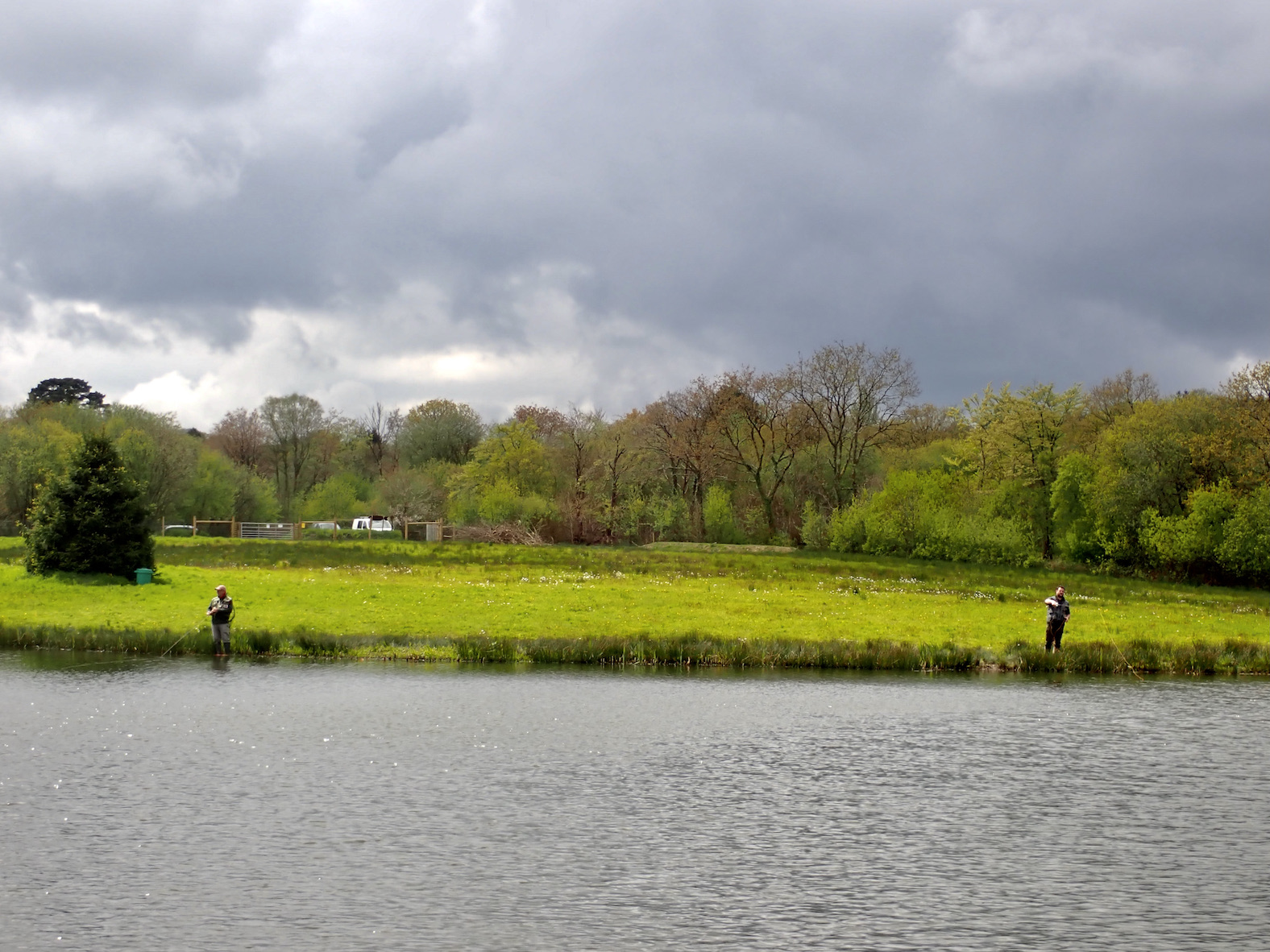
The indicator dipped and I connected with what felt a very good fish. Once again its power surprised me and I endeavoured to get it away from the overflow pipe. To my dismay the powerful fish got the upper hand and won its freedom.
Peter and Jeff had also enjoyed brief connection with large fish that came adrift any one of which would have made it a day to remember.
As the afternoon evaporated Peter hooked into his second fish, a spartic nudging a couple of pounds.
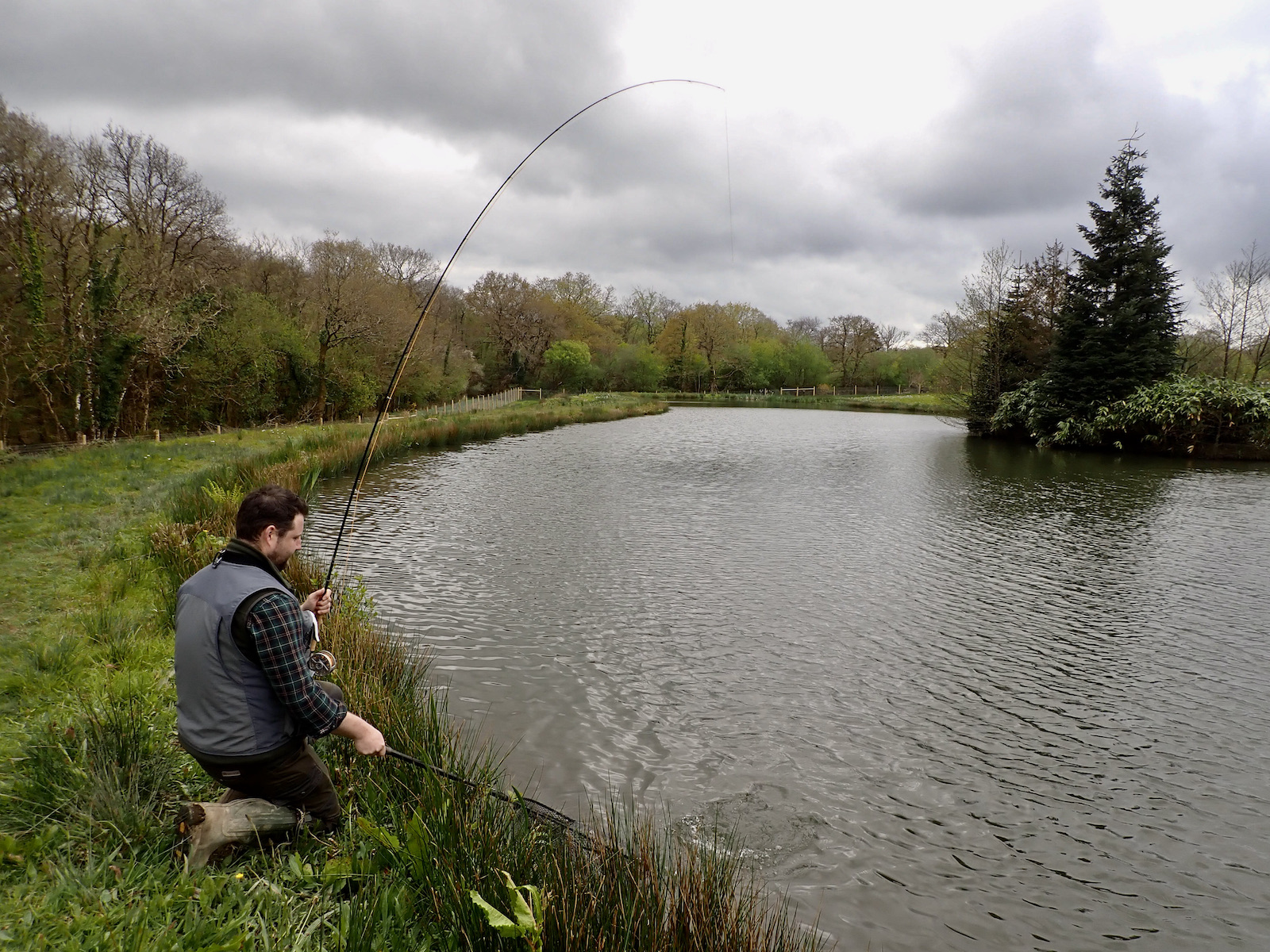
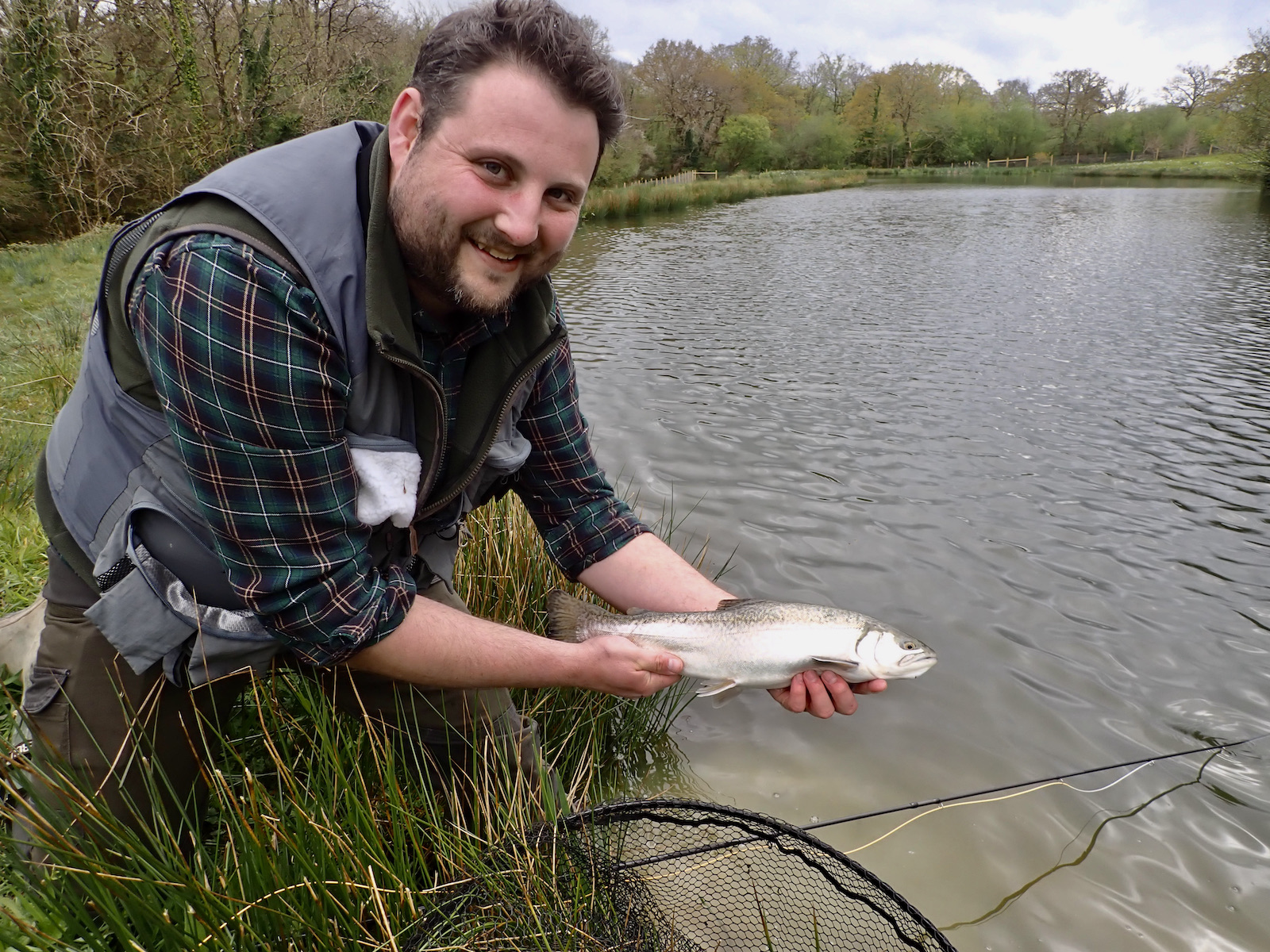
Conceding that it was hard going Peter decided to head home before the traffic got bad. Jeff and I persisted convinced that at any moment the line would zip tight and one of the lakes special fish would make an error.
Jeff pointed out the orange of my lost indicator at the upwind end of the lake. I wondered if the fish was still attached? I walked around and after a couple of casts managed to hook into the indicator. The fish was no longer attached but the buzzer was still there so at least the barbless hook had fallen free.
By late afternoon the cold wind and lack of action started to take its toll and we eventually conceded defeat agreeing to return in search of the large trout that dwell within the lake that nestles within a wooded valley.
Anglers Paradise Trout Lake is strictly Catch and release with barbless hooks, single flies, rubber nets and unhooking matts mandatory. I personally try to unhook fish in the water returning with minimal handling.
Catch and release is a concept withing trout fishing circles that stimulates some debate. Some believe it makes the fish wary and harder to tempt. Whilst there could be a bit of truth in this it also enables trout fishing for large fish at a very reasonable price.
Day Tickets for Anglers Paradise can be purchased via https://www.gocatch.fish
(Below)
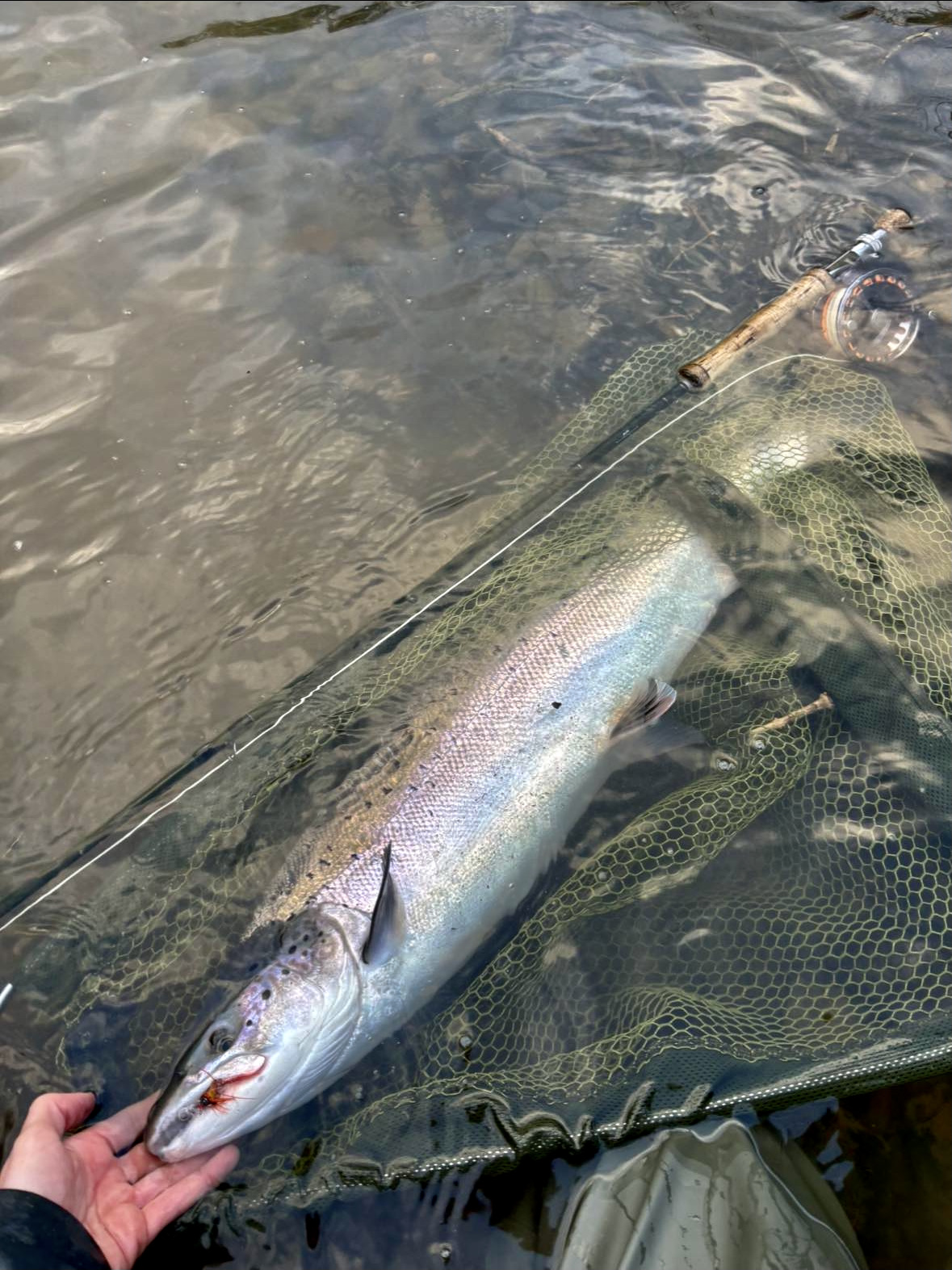
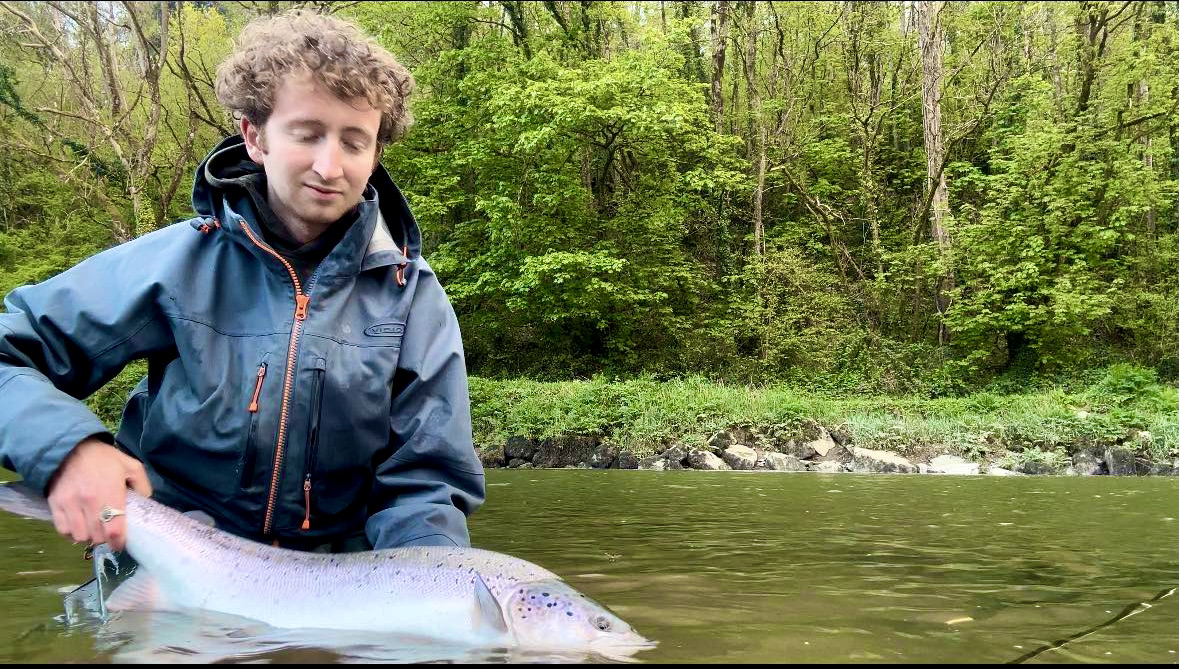
“After an awful start to the season with river heights rarely dropping below 1m on the gauge, I’ve finally managed to get out salmon fishing a few times recently. After what feels like endless blanks over the last couple of years, I’m over the moon to have caught this 13lb salmon on a single handed rod, full floating line and small shrimp style fly. It feels like a great privilege to catch a fish like this on the Torridge as they become rarer and I’m so happy that all the time I’ve put in has been worth it.”
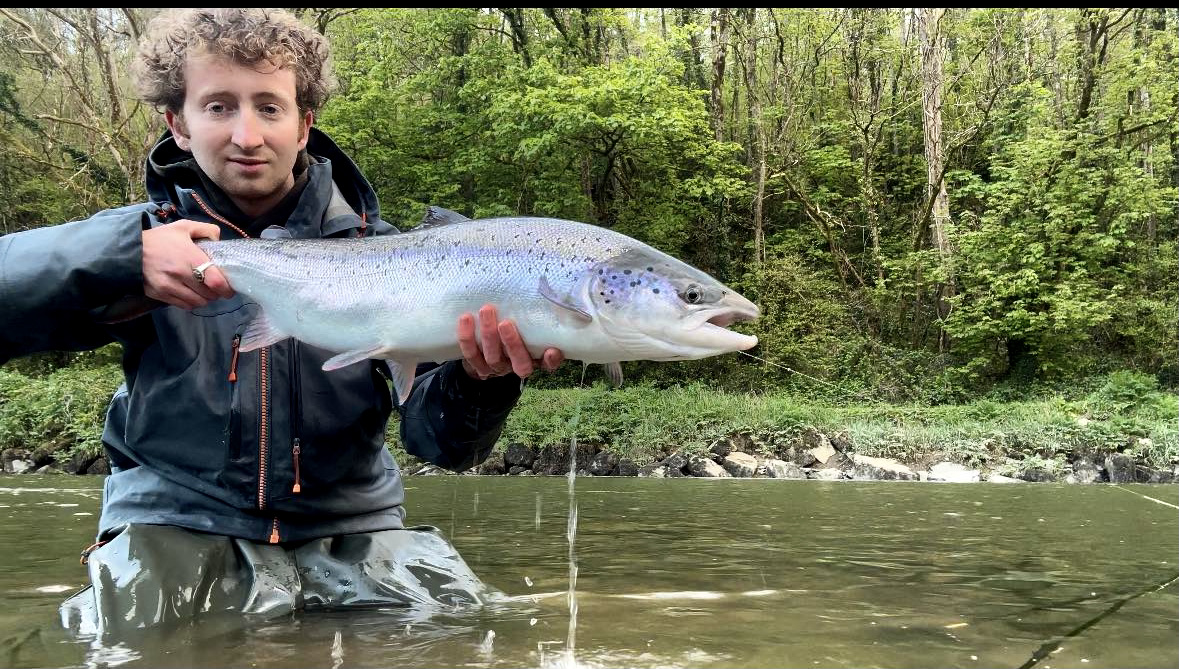
Stuart Gardener was a founding member of the South West Rivers Association in the 1960’s and created an annual award to be presented to someone who has done exceptional work for fishing organisations in the South west.
This encompasses the twenty two South West River Associations.
This year the award was presented to Stephen Phelps at the Associations AGM at the Arundell Arms the beating heart of West Country Fishing. Stephen writes :-
“I was presented with it, I’ll hold it for a year.
At yesterday’s SWRA AGM i was speechless, just mumbled a “thank you”.
Today I realise the enormity of it to me. I will, I’m sure not receive anything so special again.
Previous recipients include Charles Inniss, previous chairmen of the association, even Lord Clinton our President, until he passed away about a month ago.
Hope you don’t mind me sharing but I am overwhelmed chuffed.”
A pollution incident on the River Taw caused wide concern across the angling community. Fortunately there were no reports of fish deaths following the incident that affected several miles of the mid to Lower Taw. The Environment Agency carried out an investigation and will undoubtedly continue to monitor the situation.Anglers and those at the water edge are encouraged to report any pollution concerns to the EA on the hotline number 0800 807060
